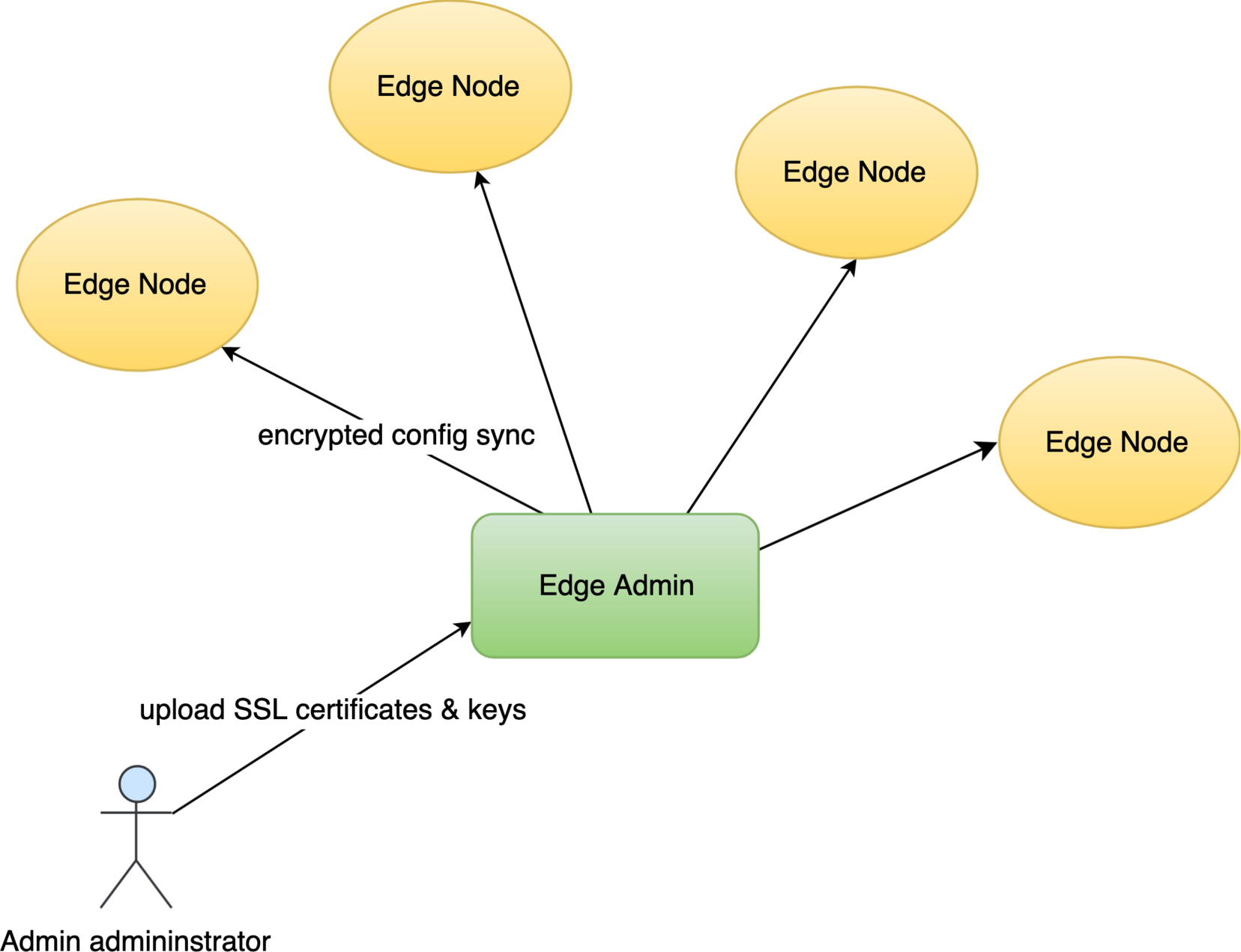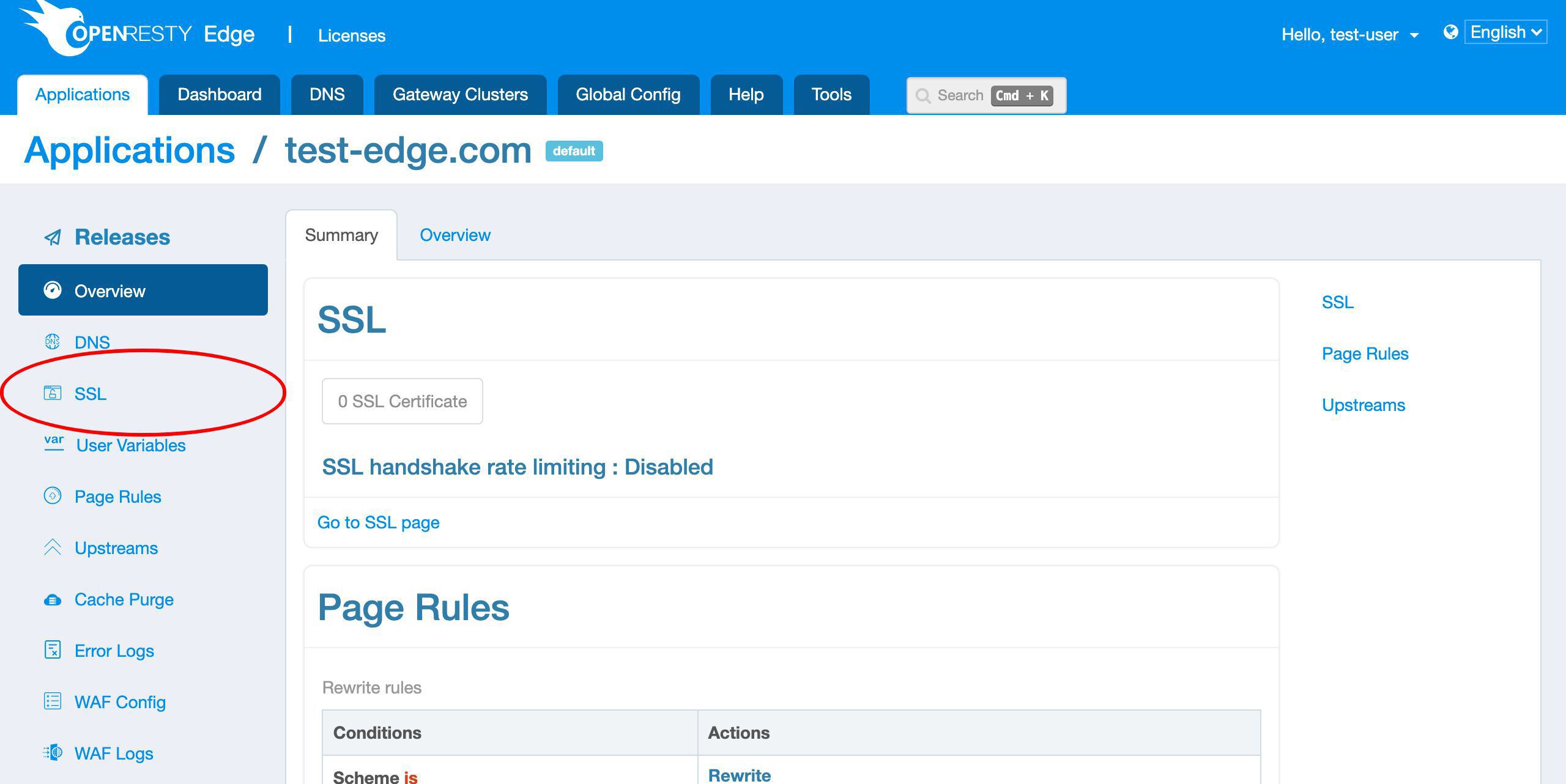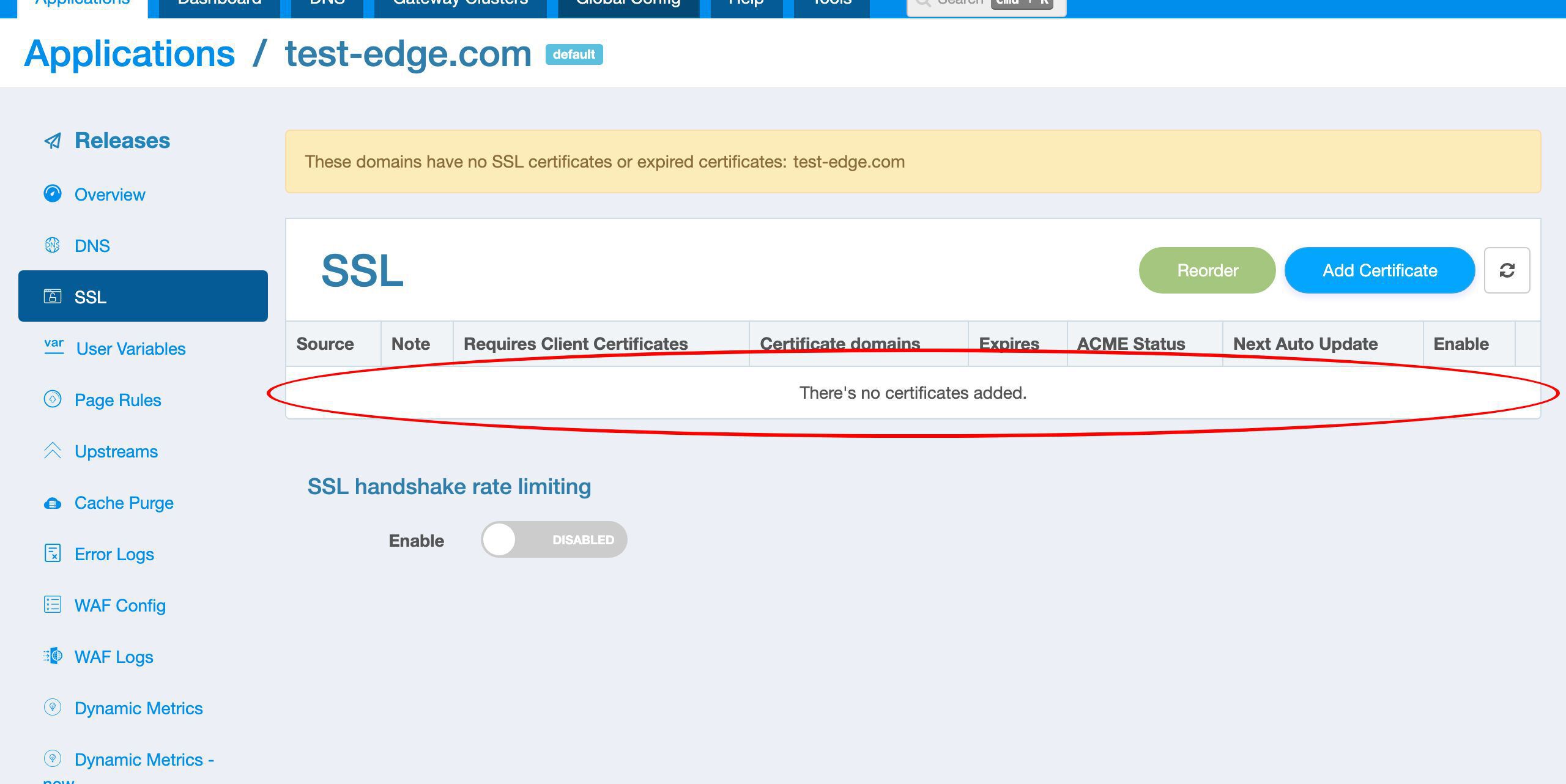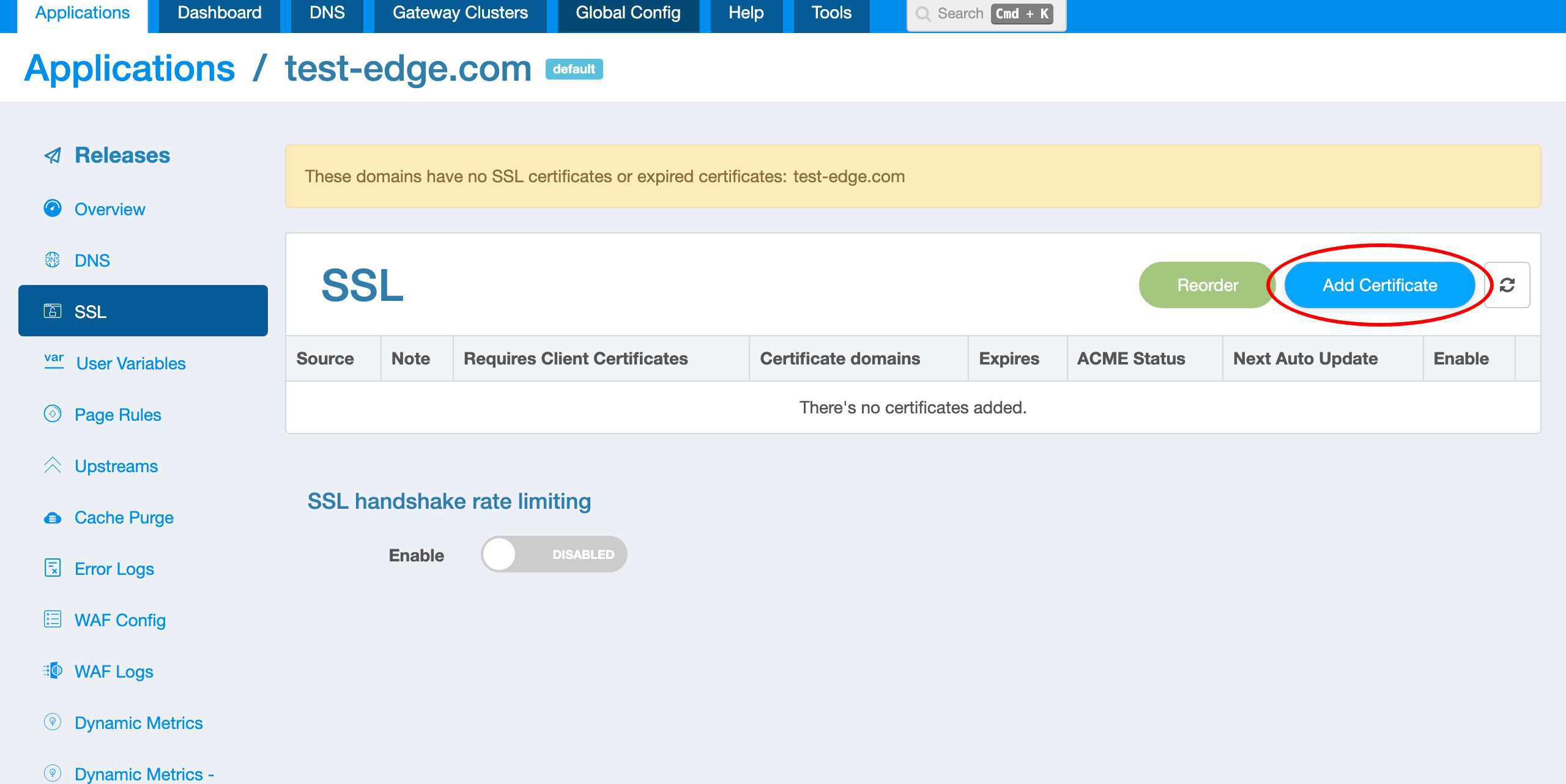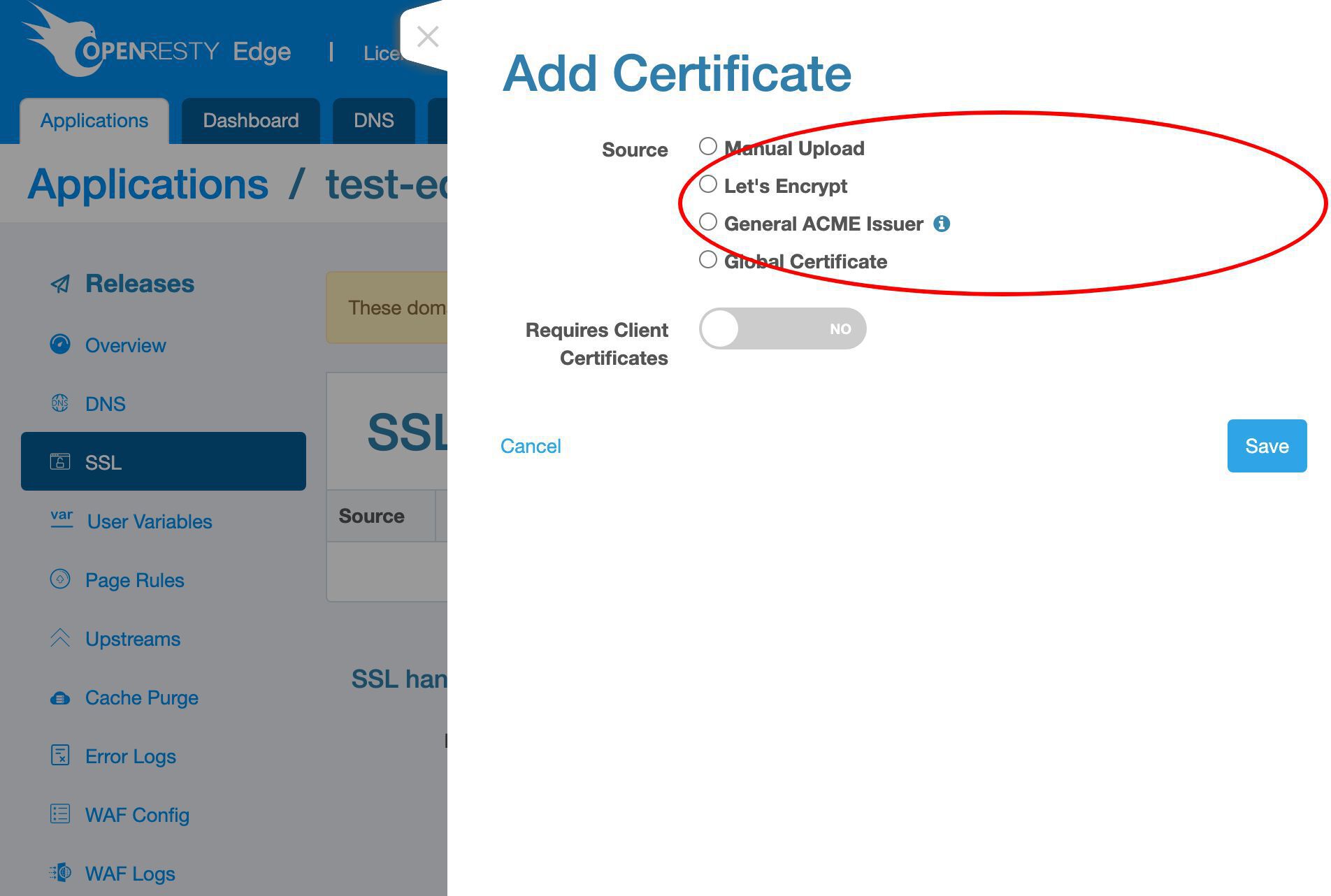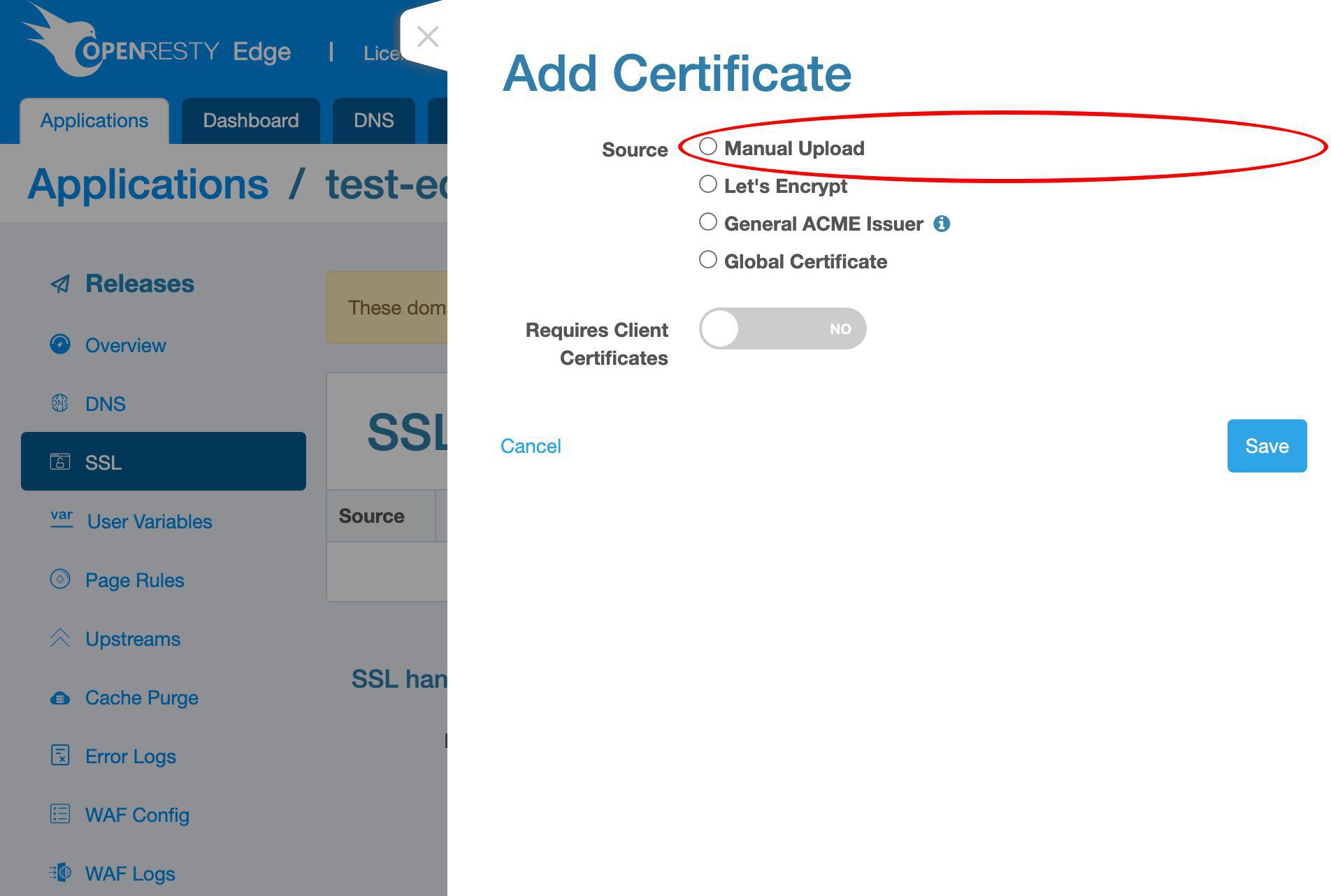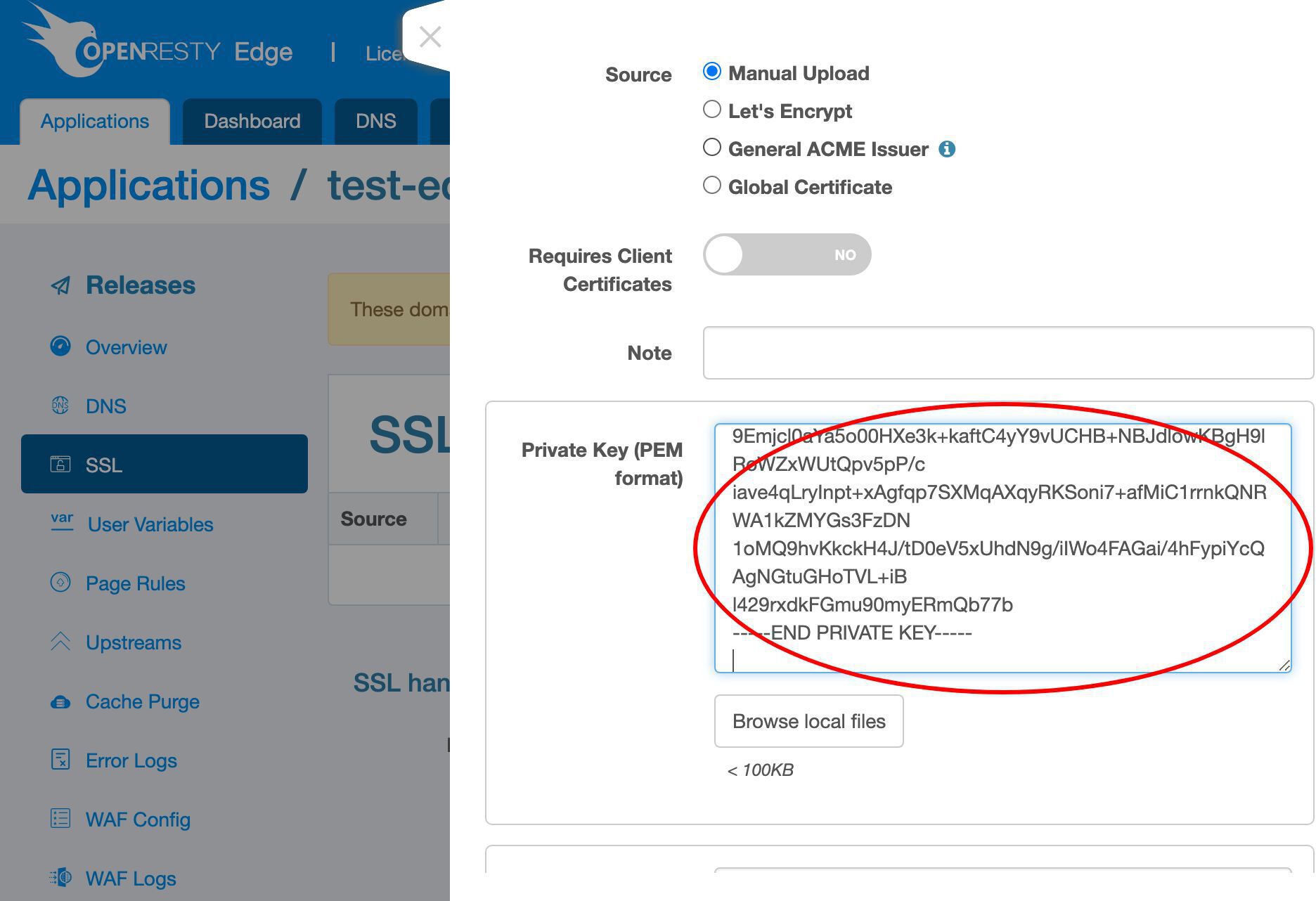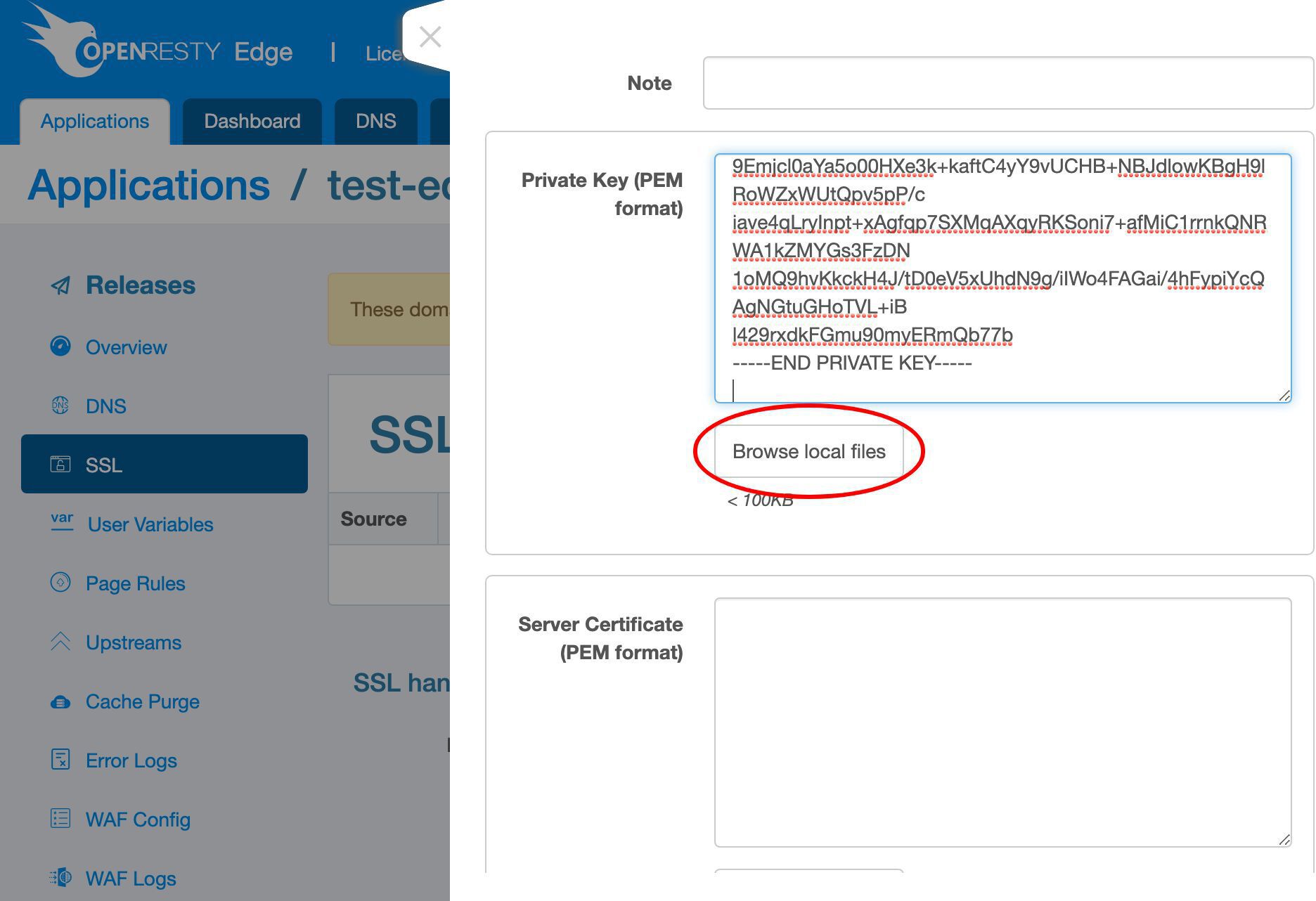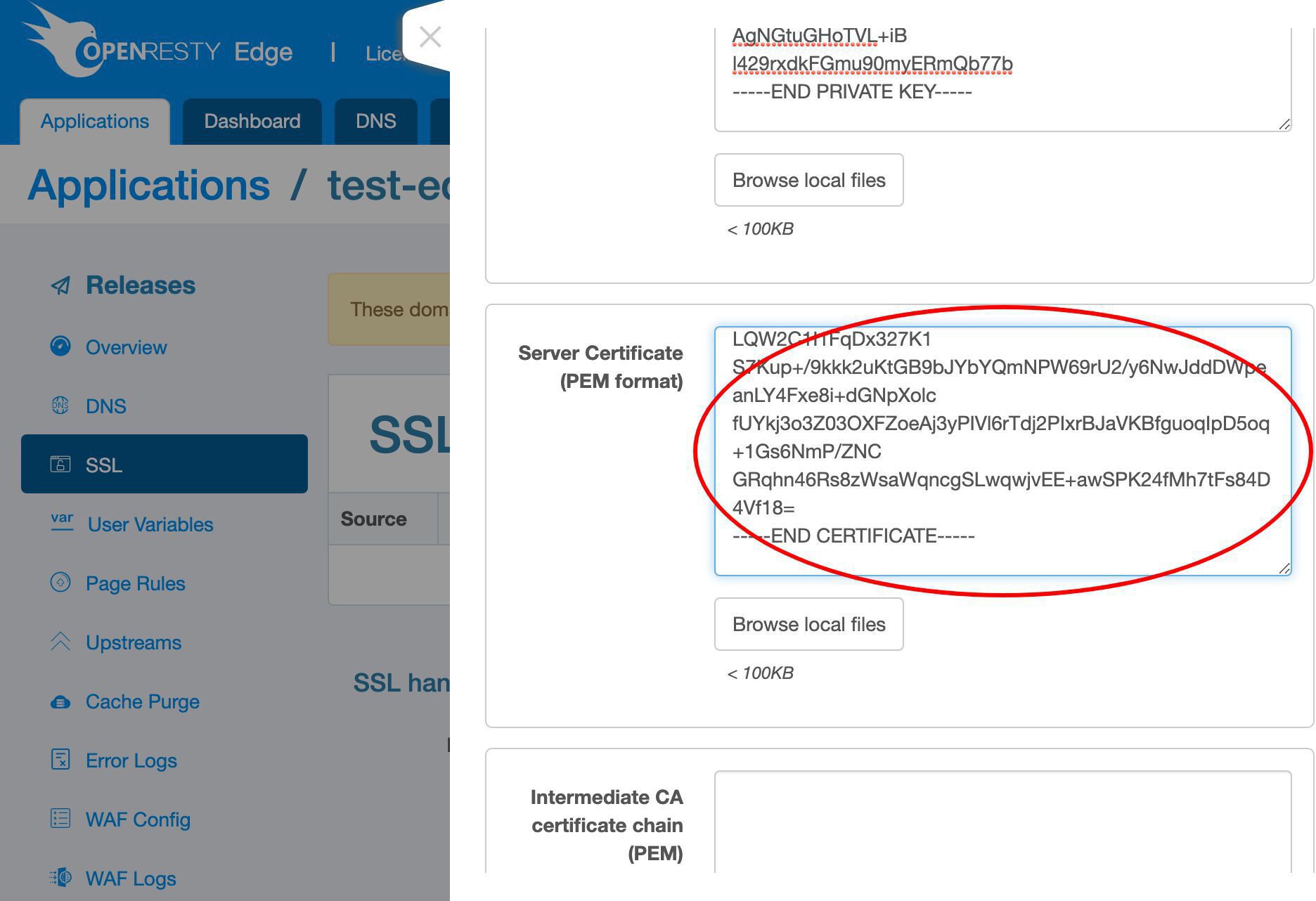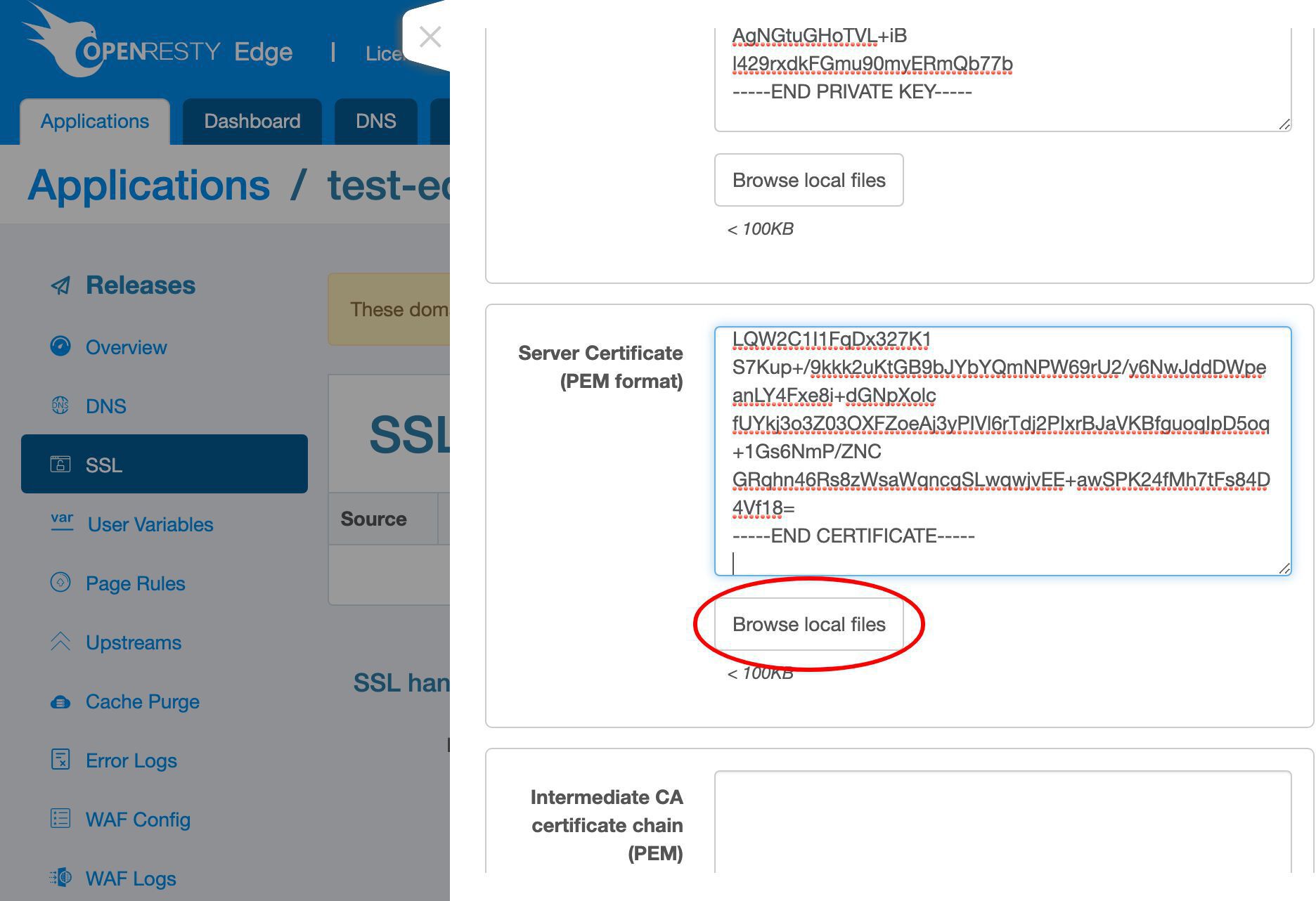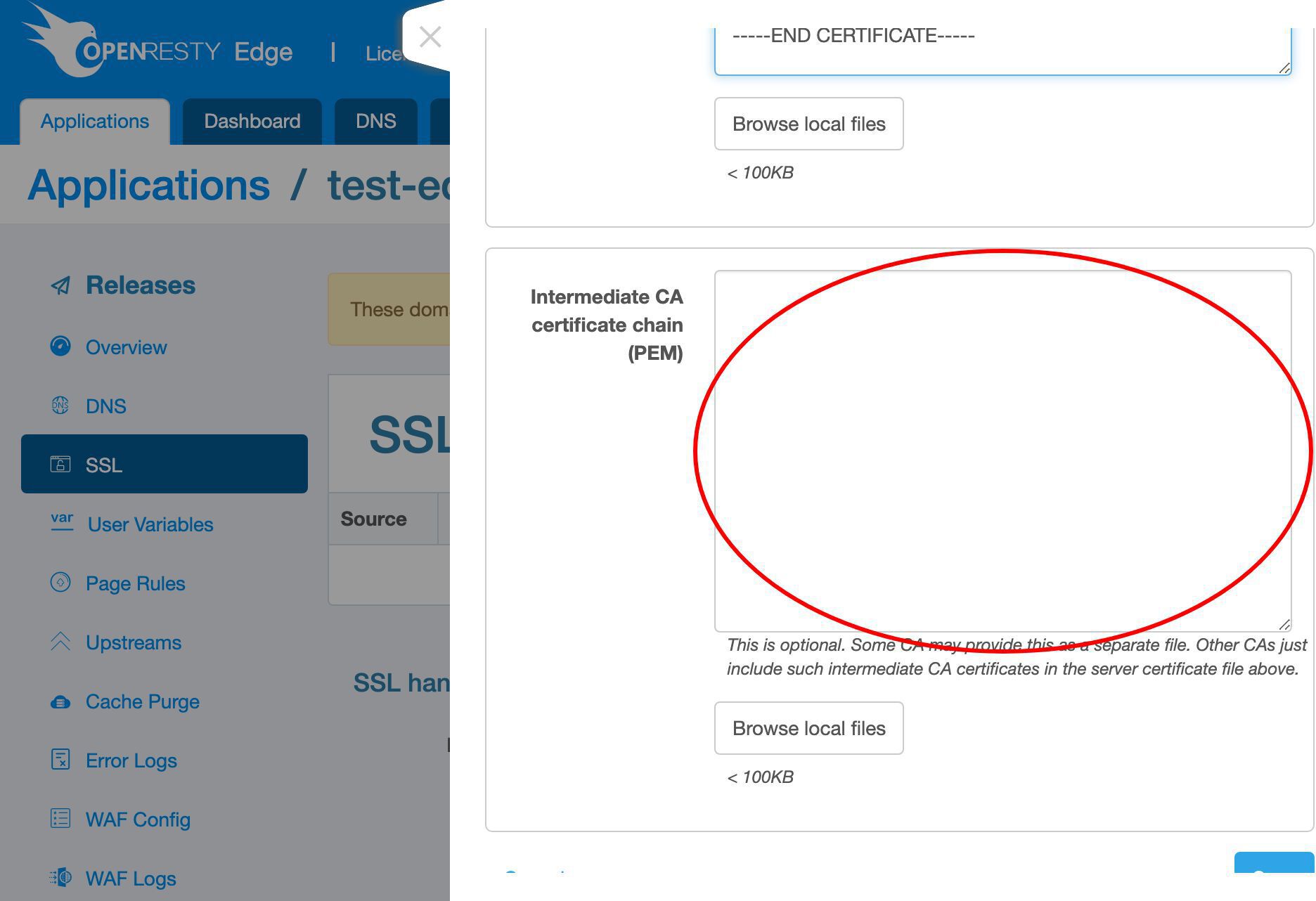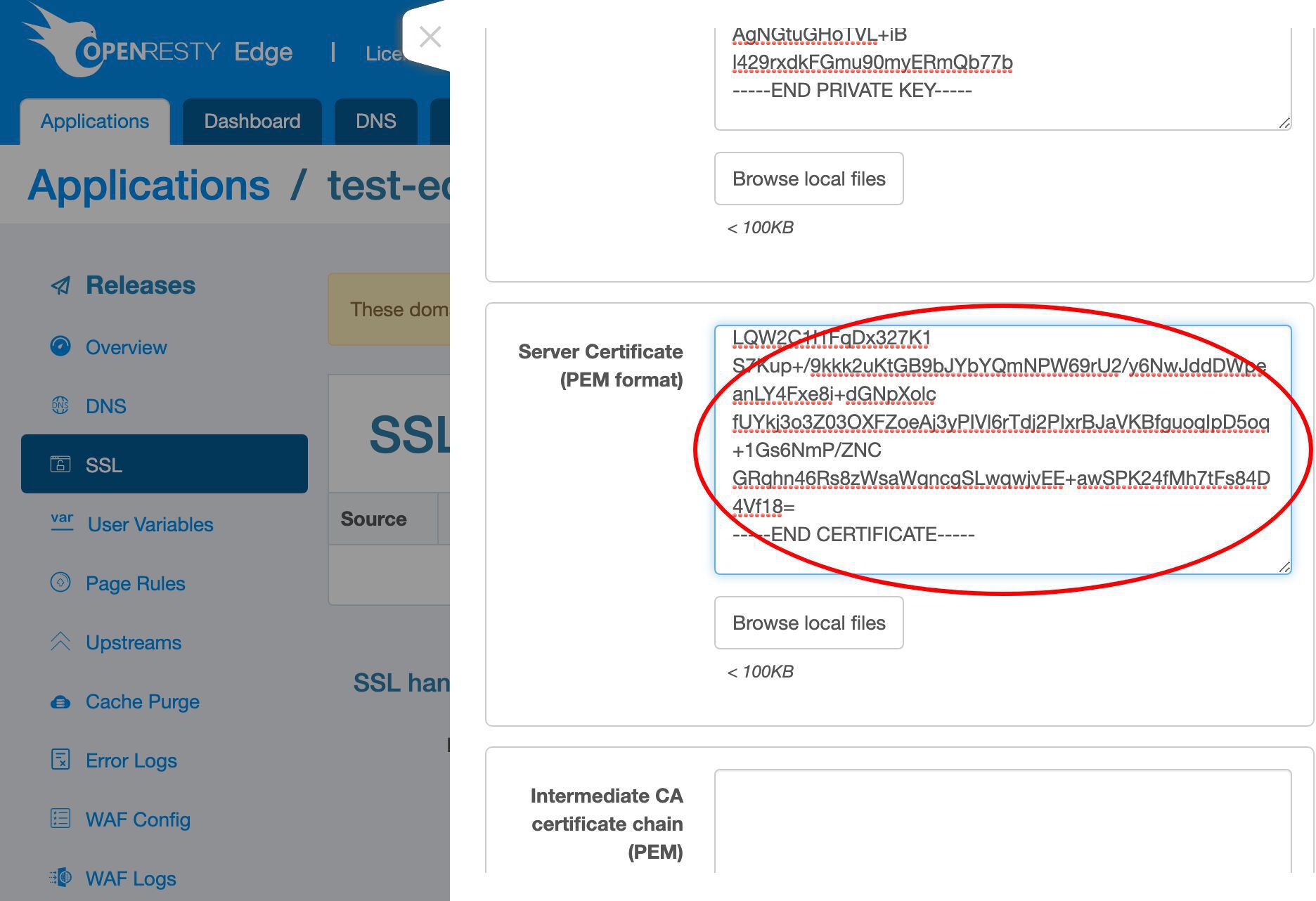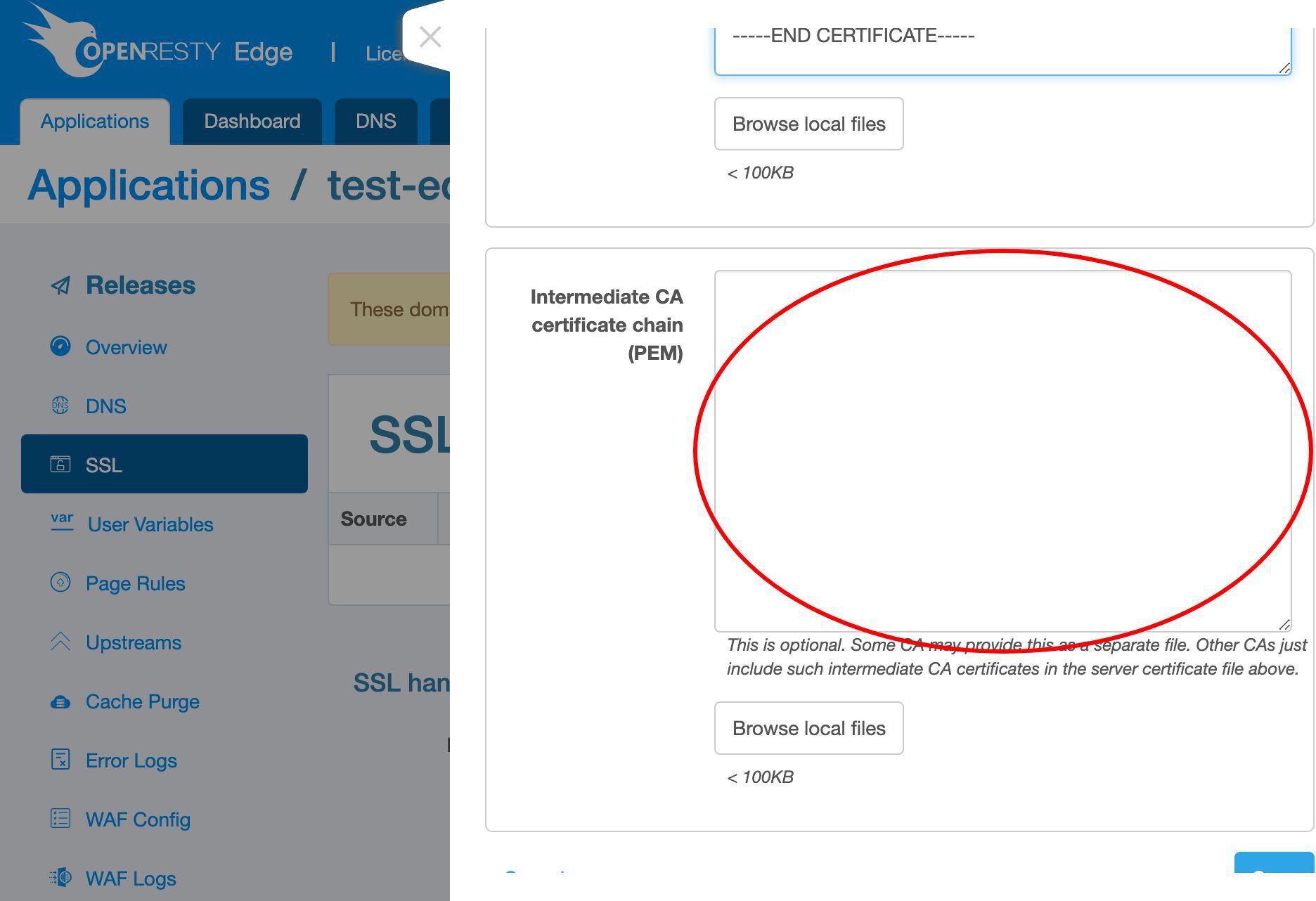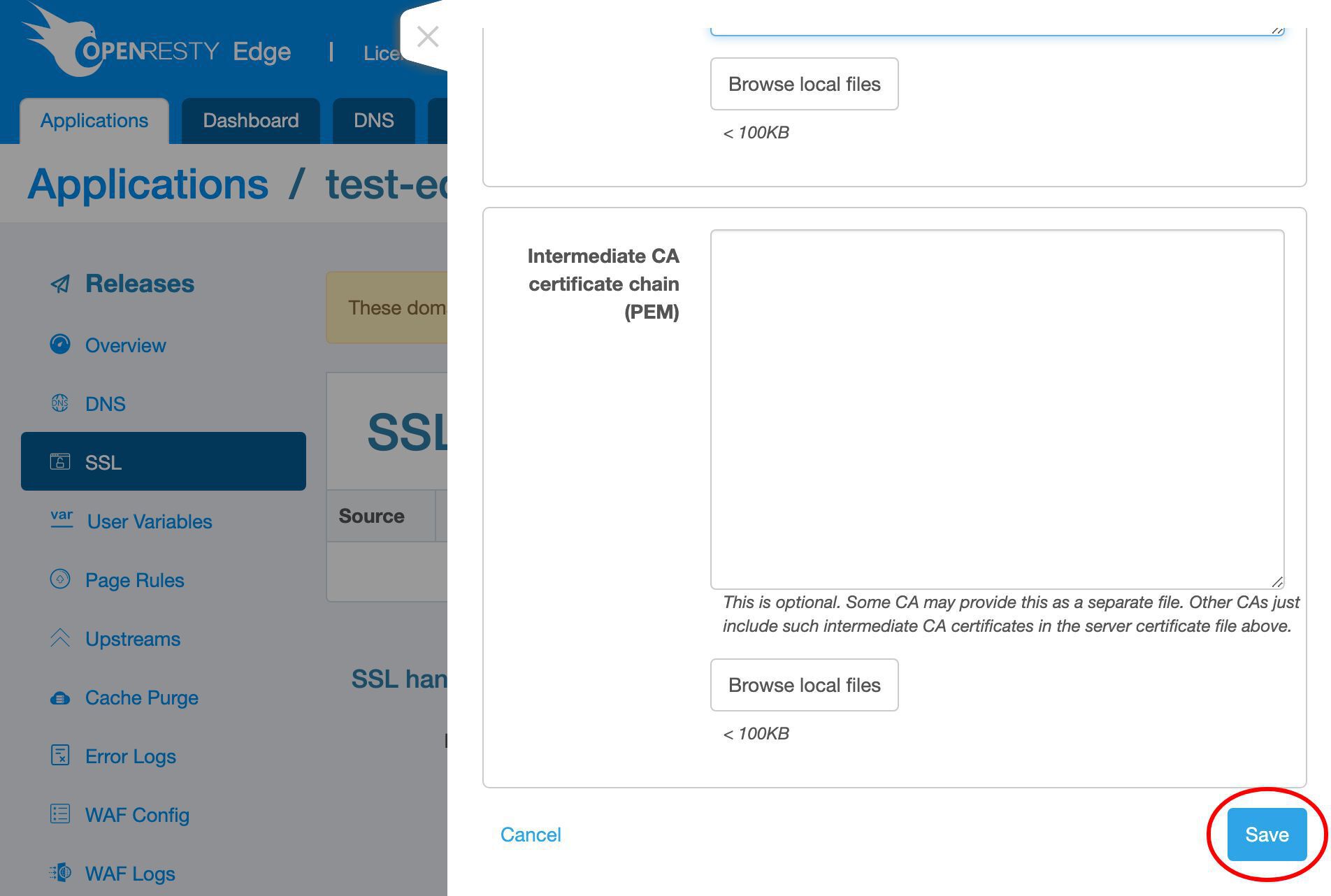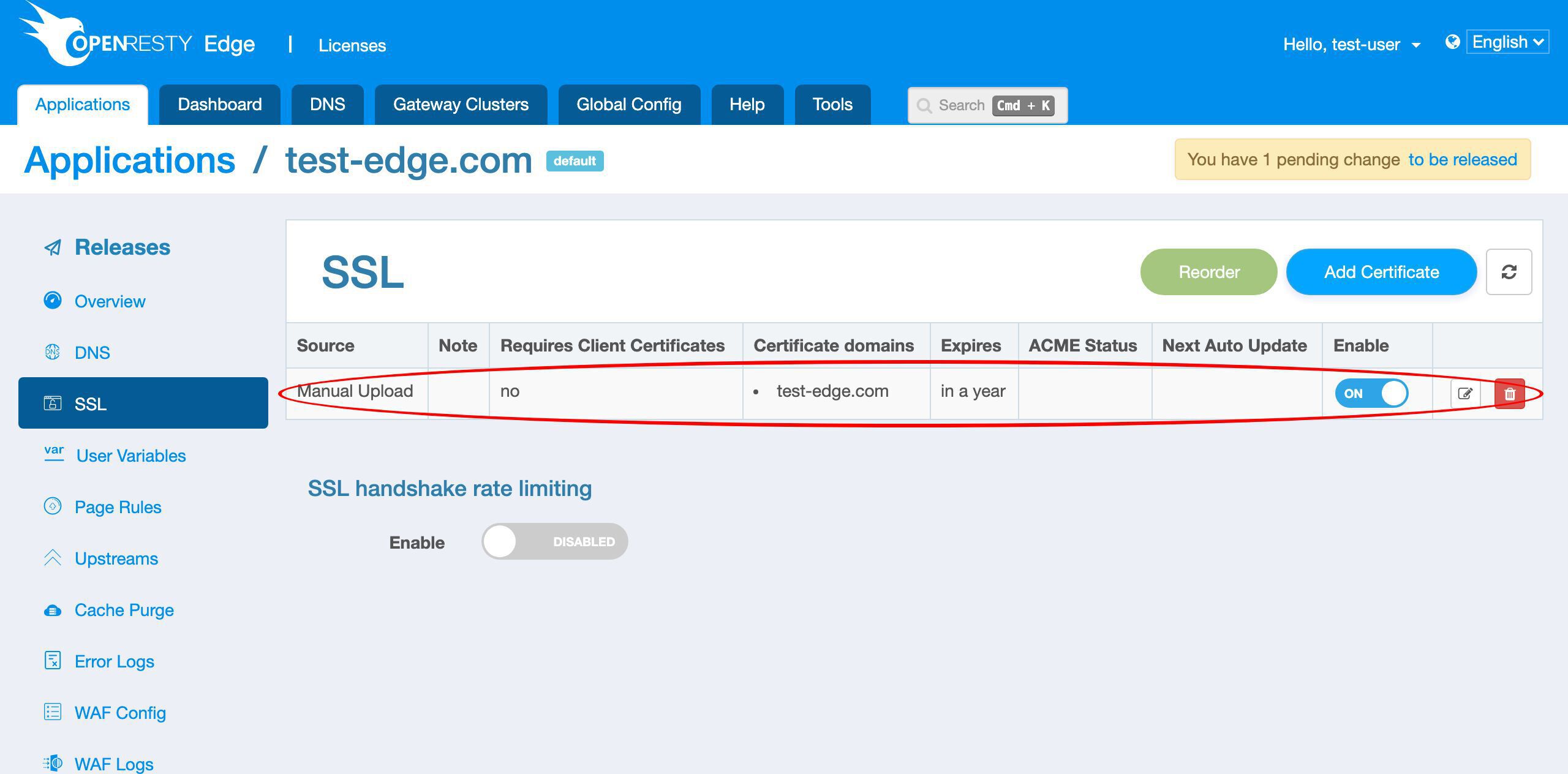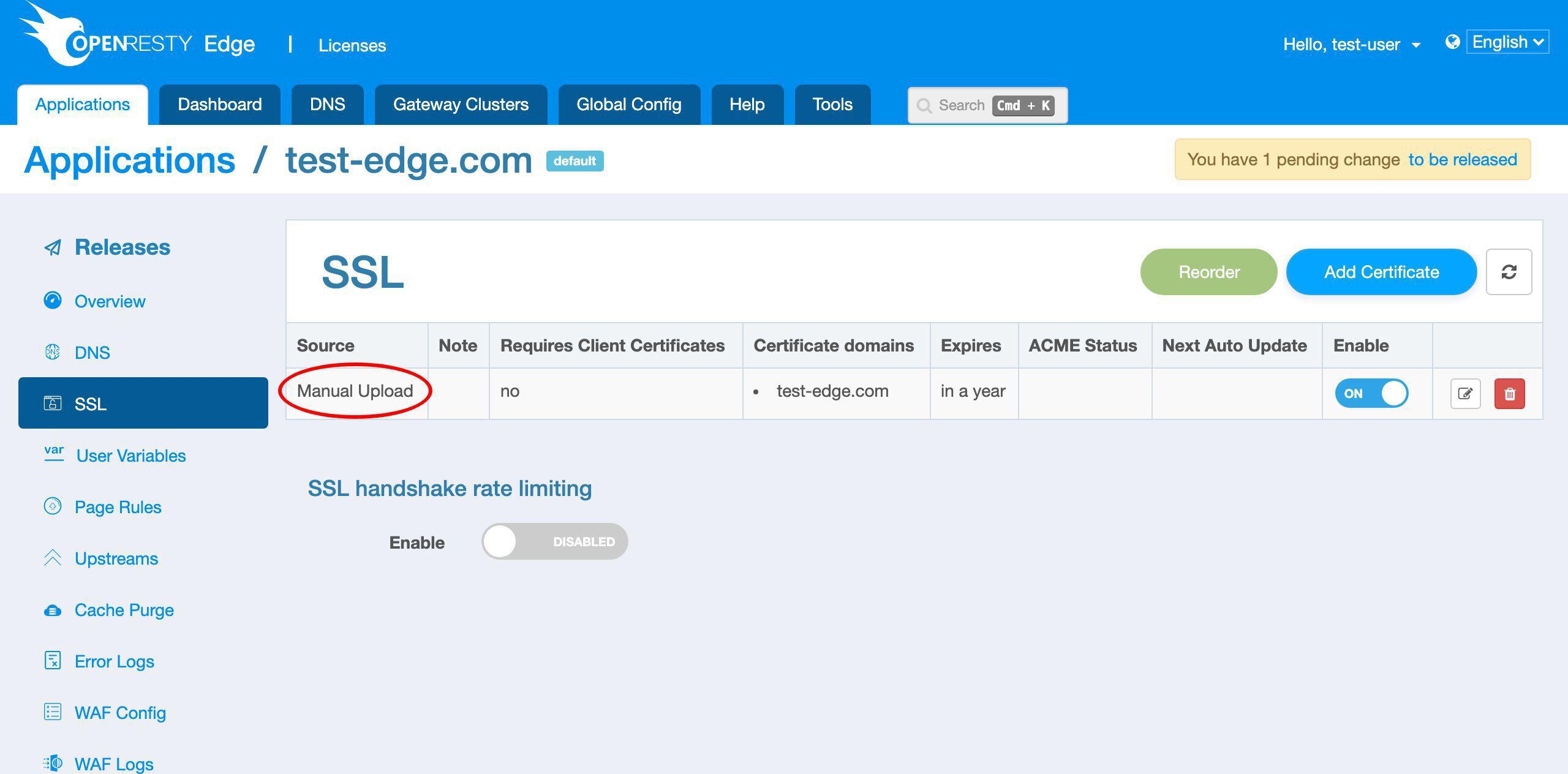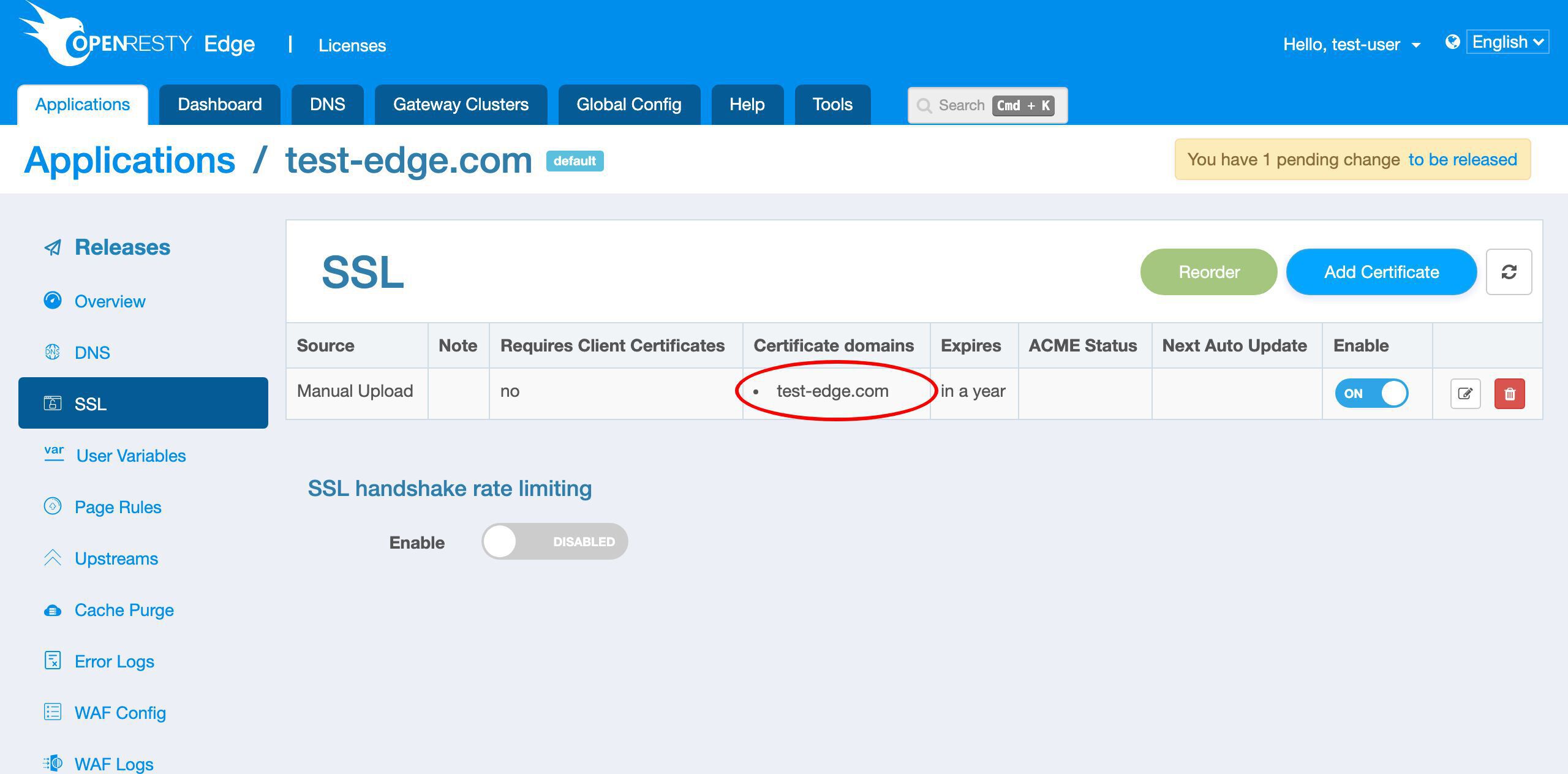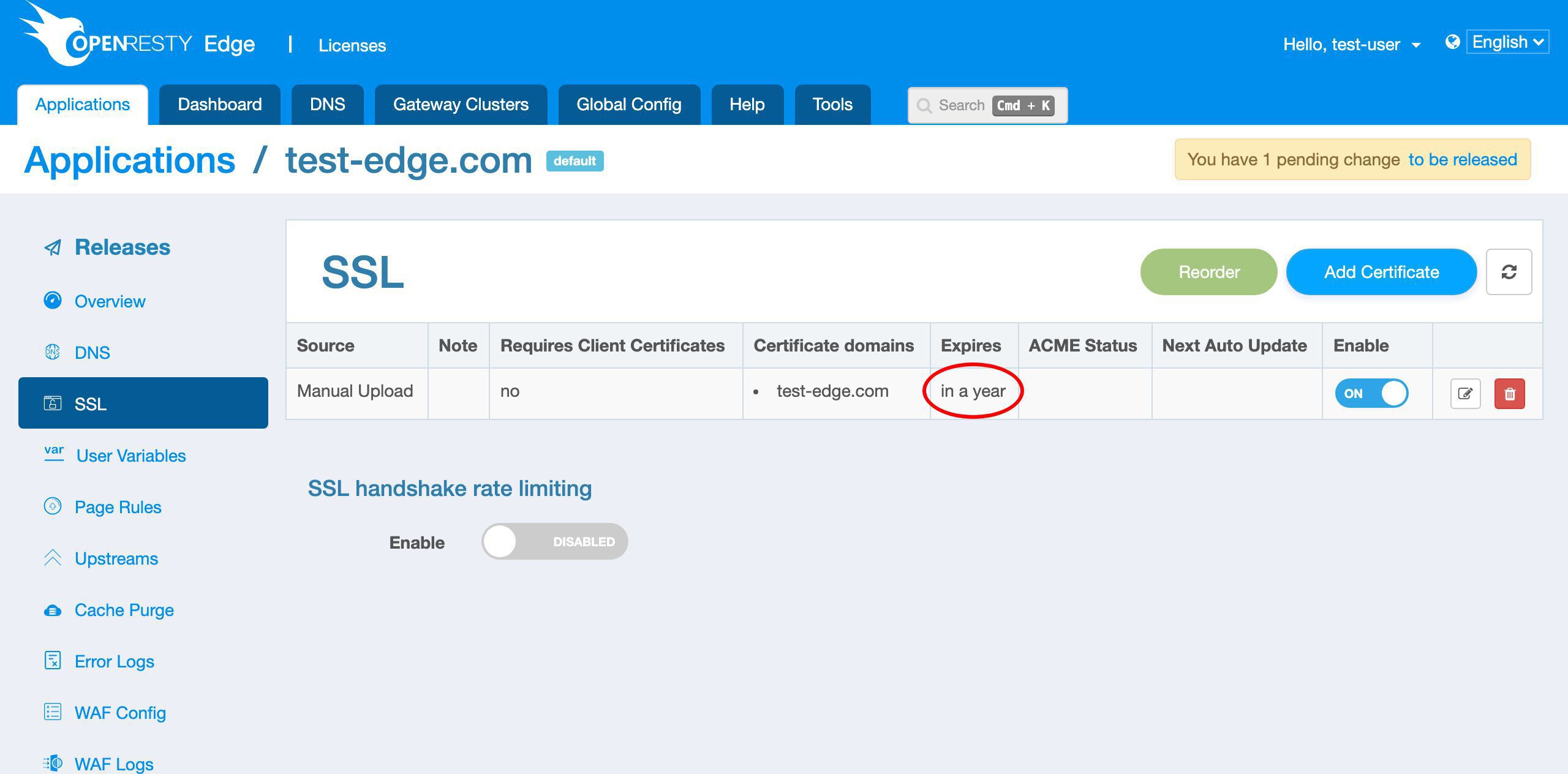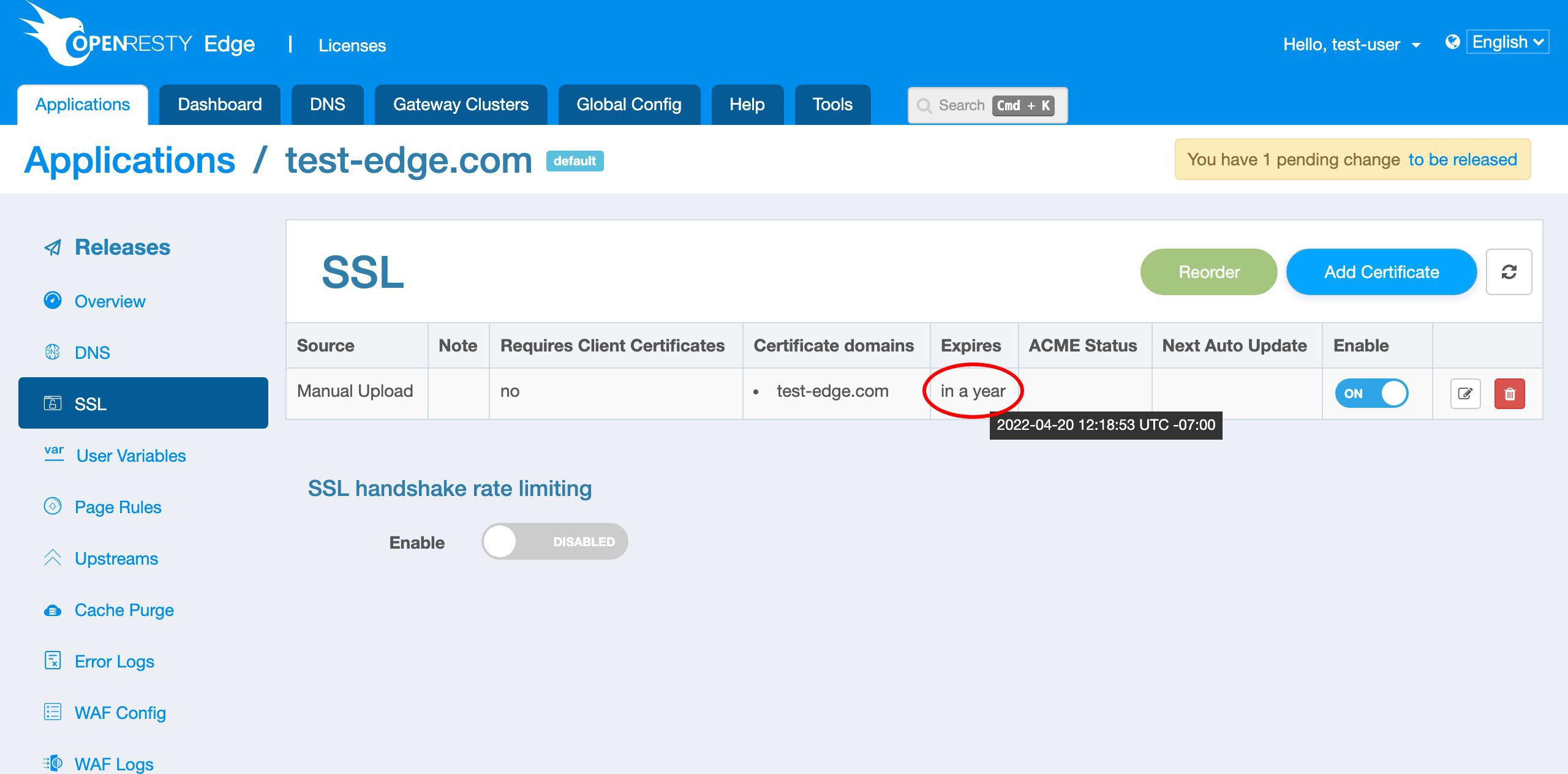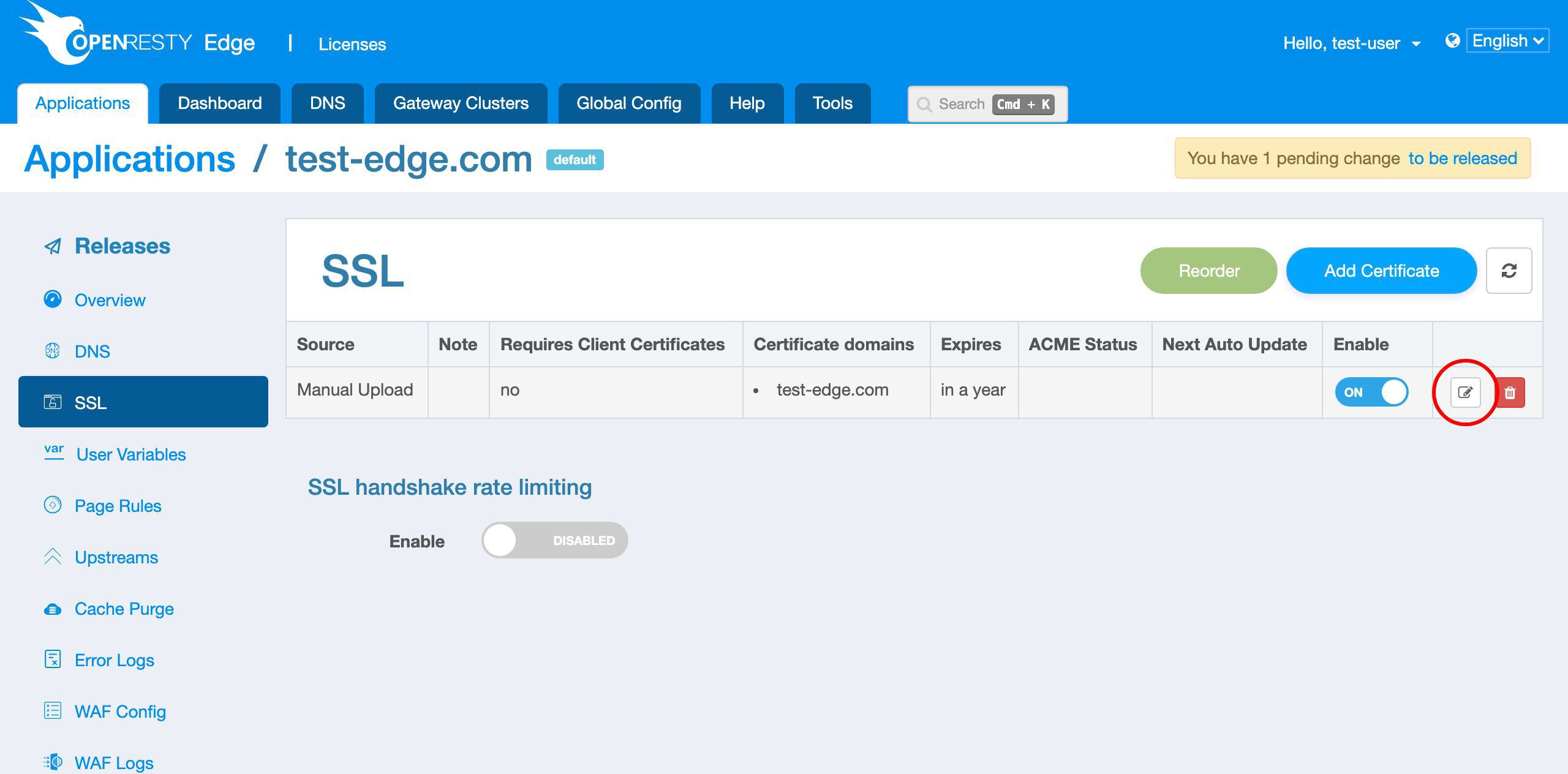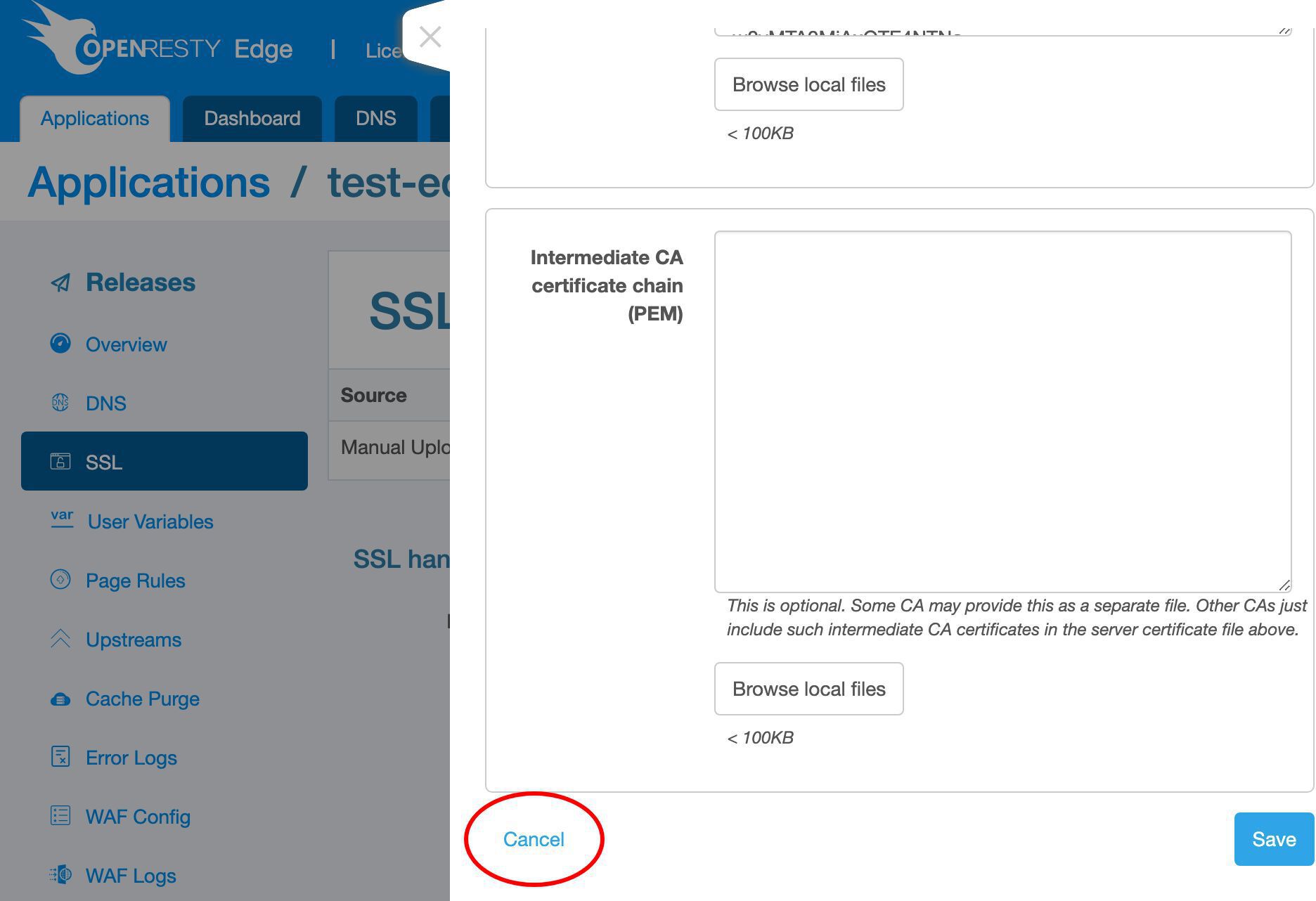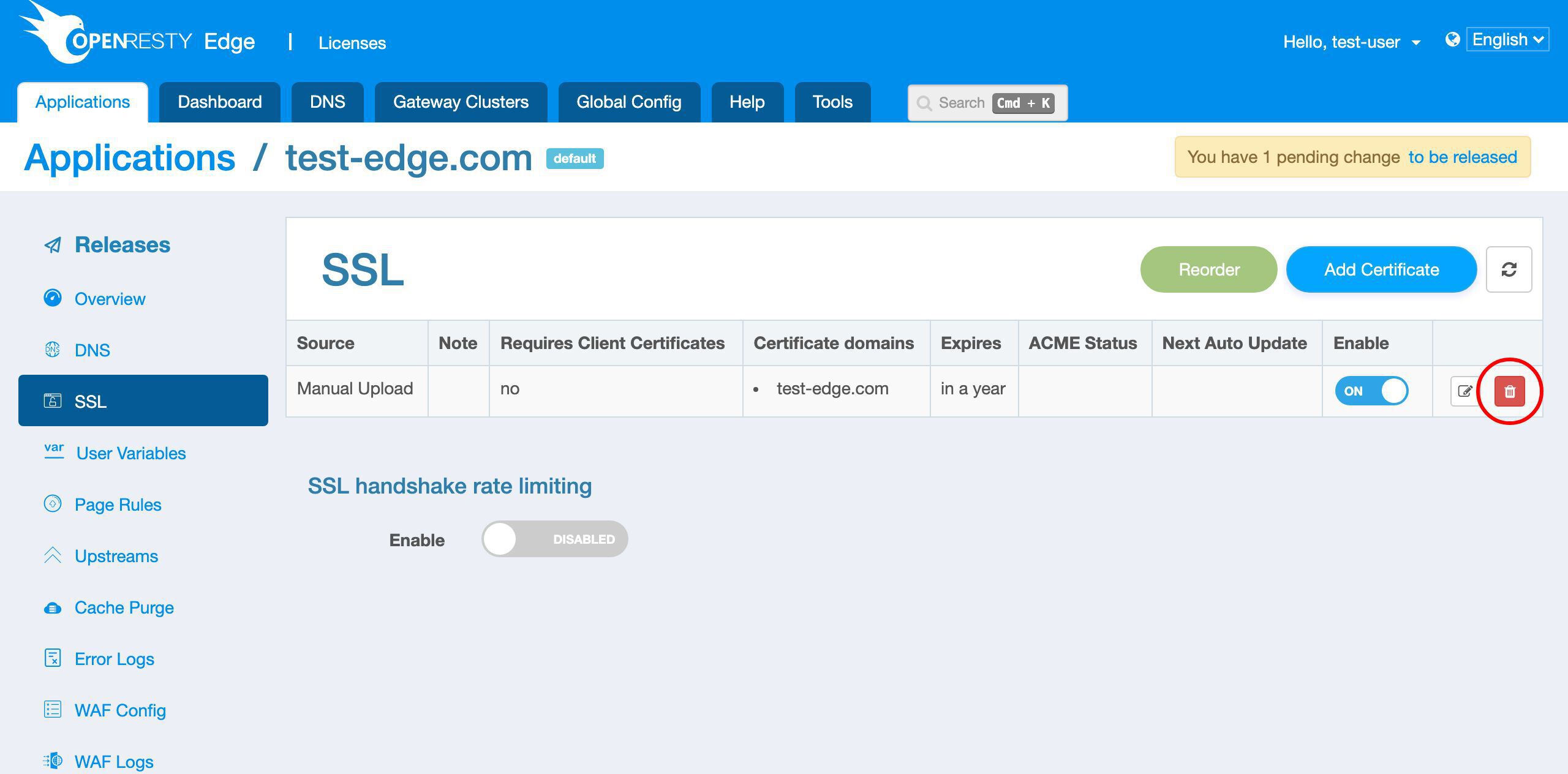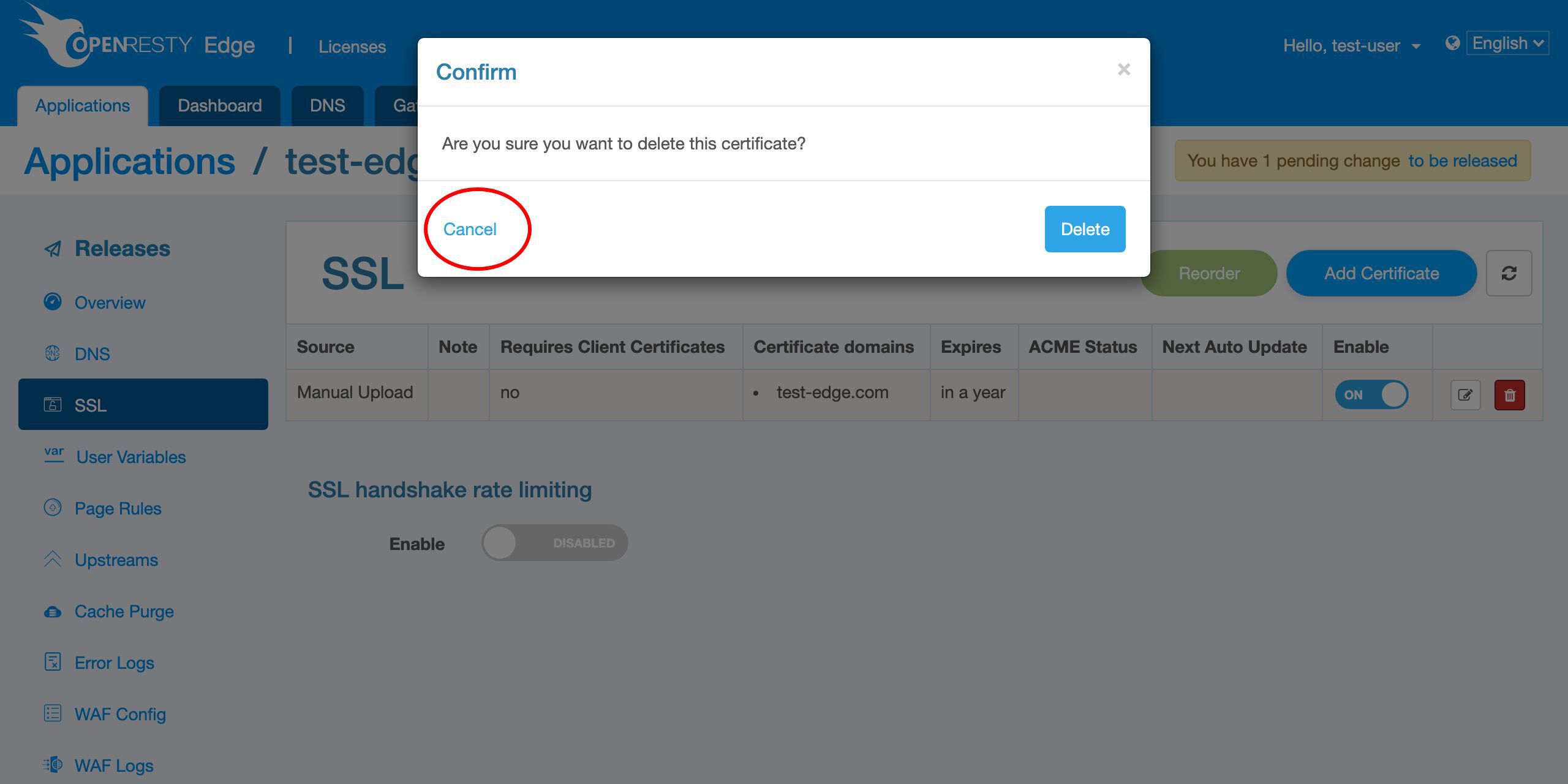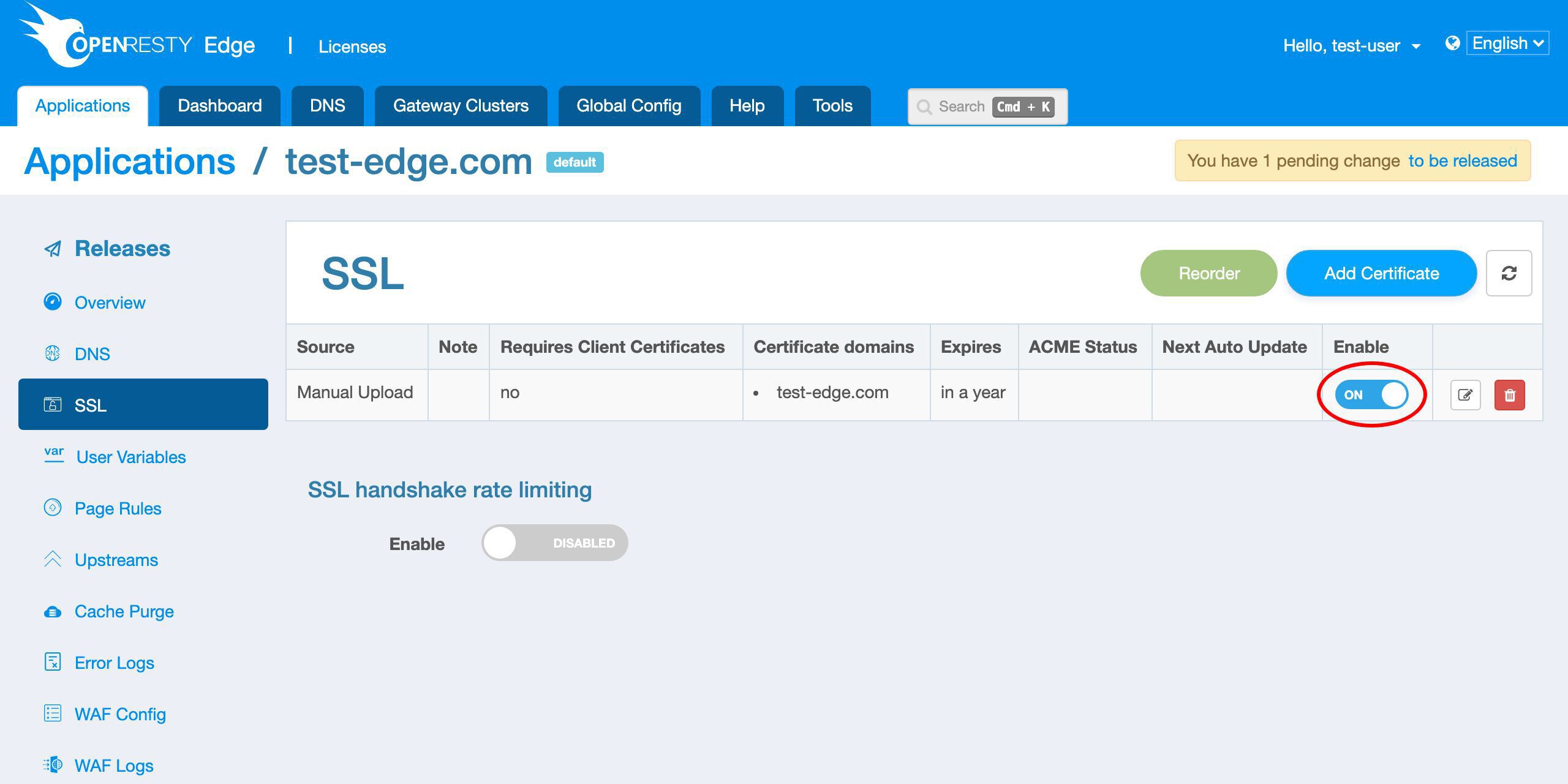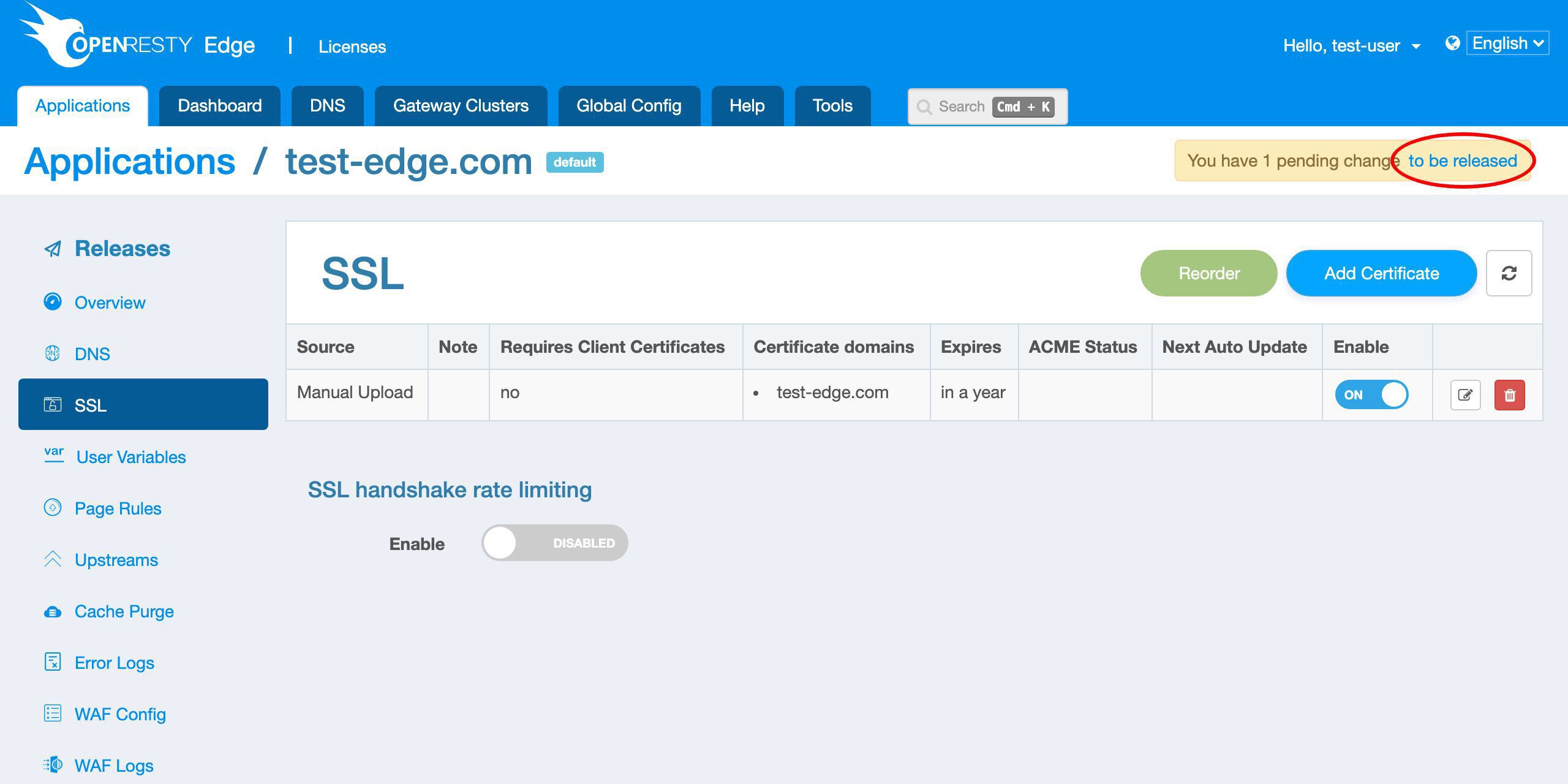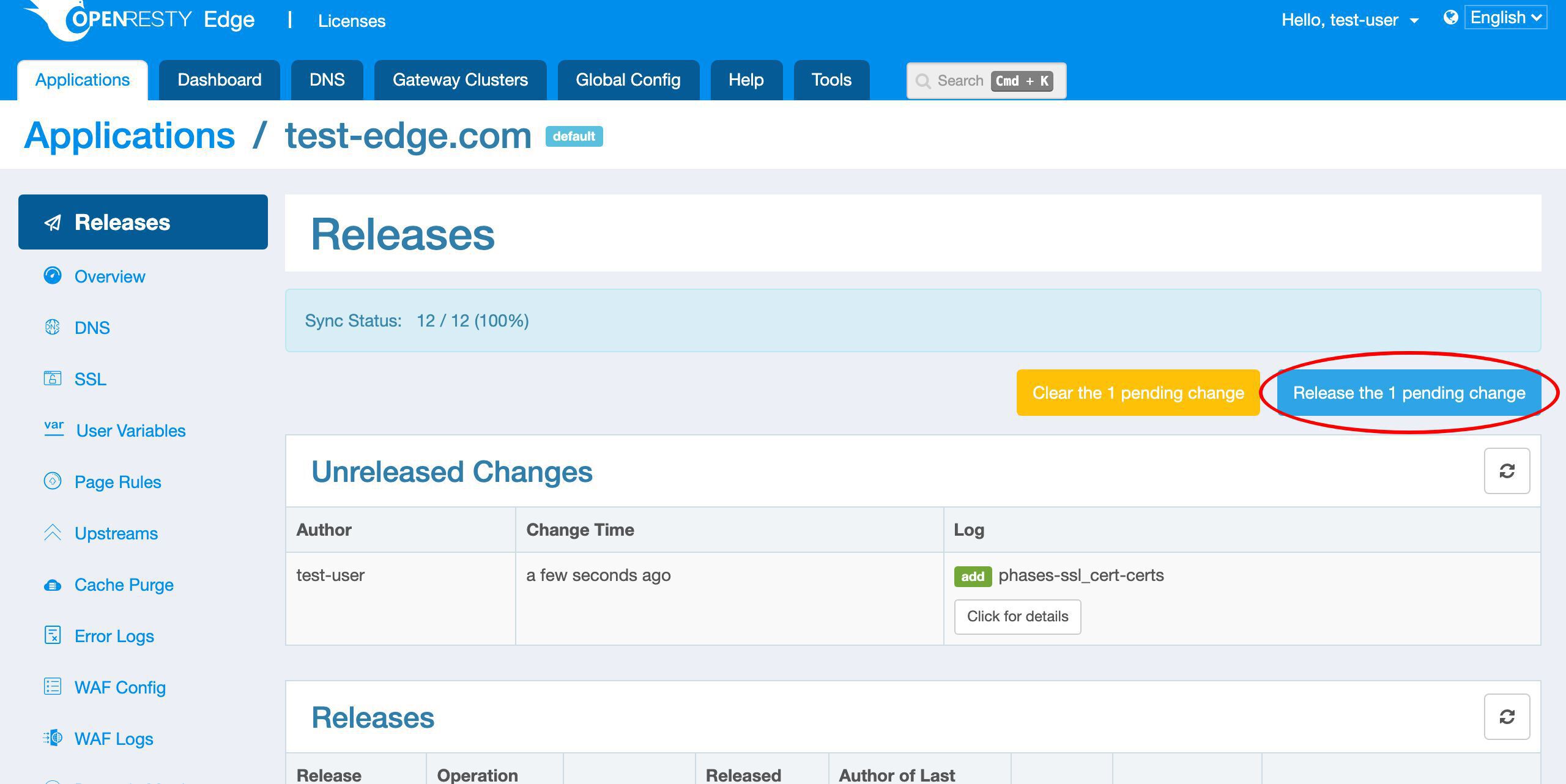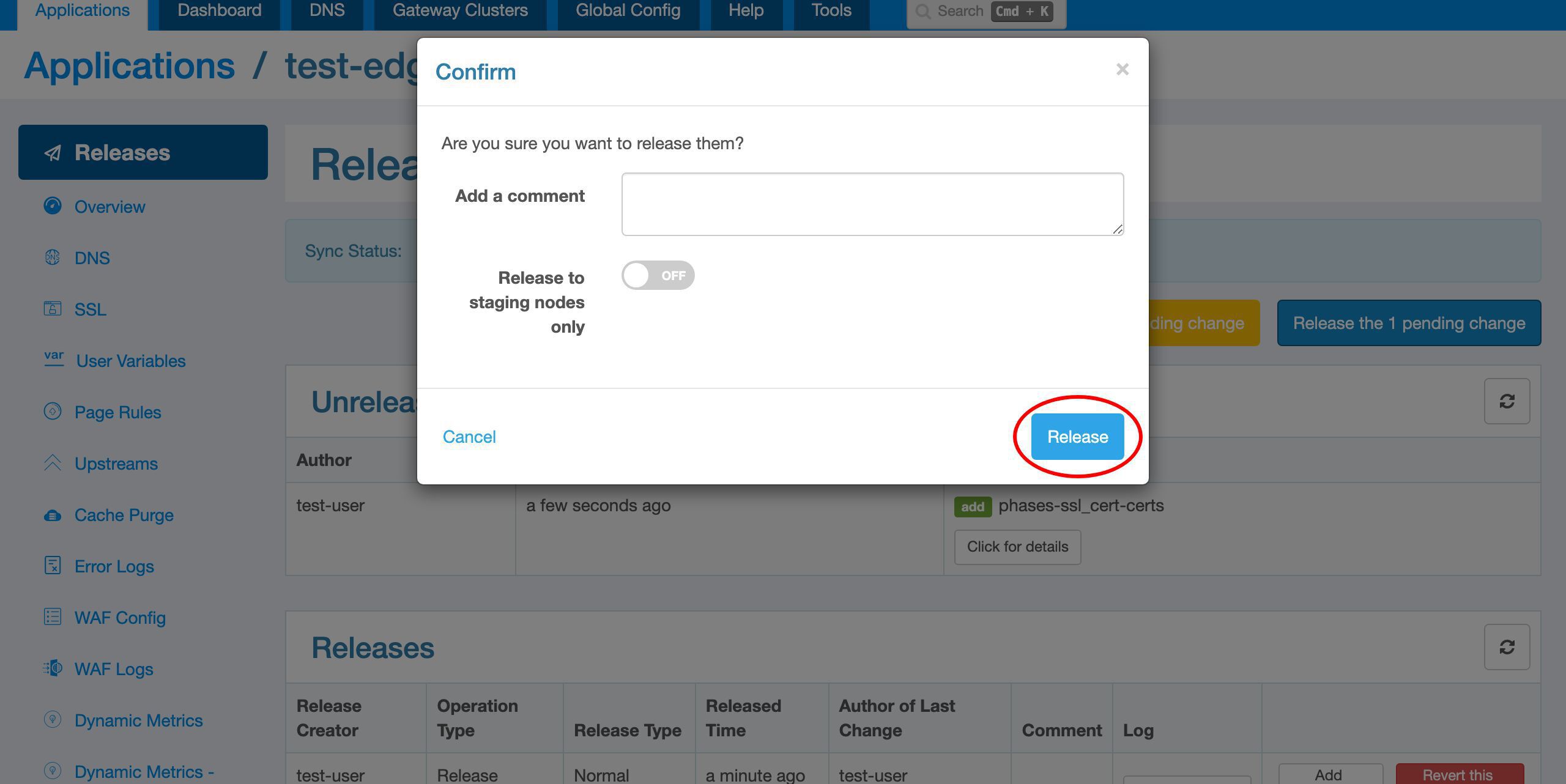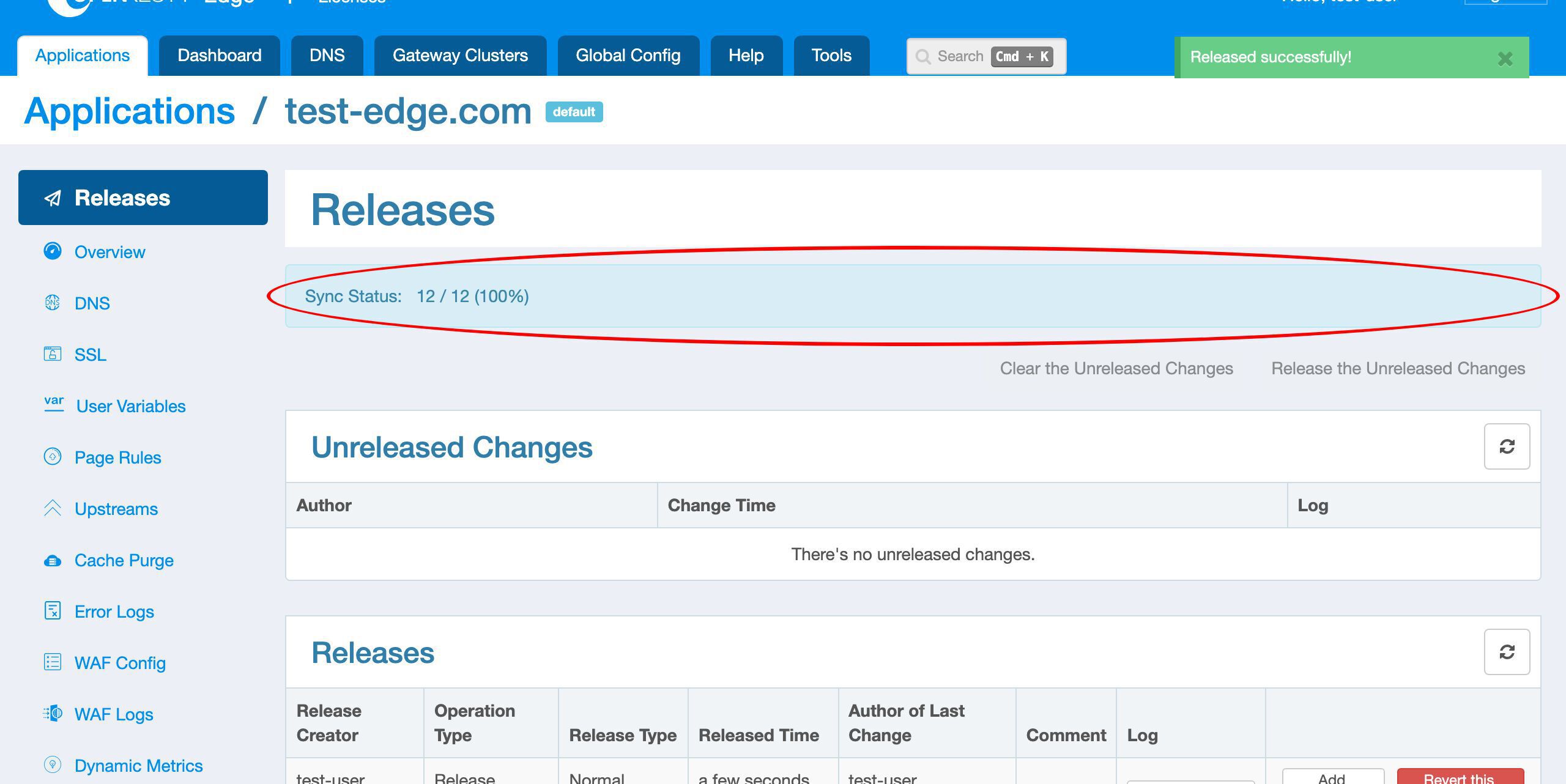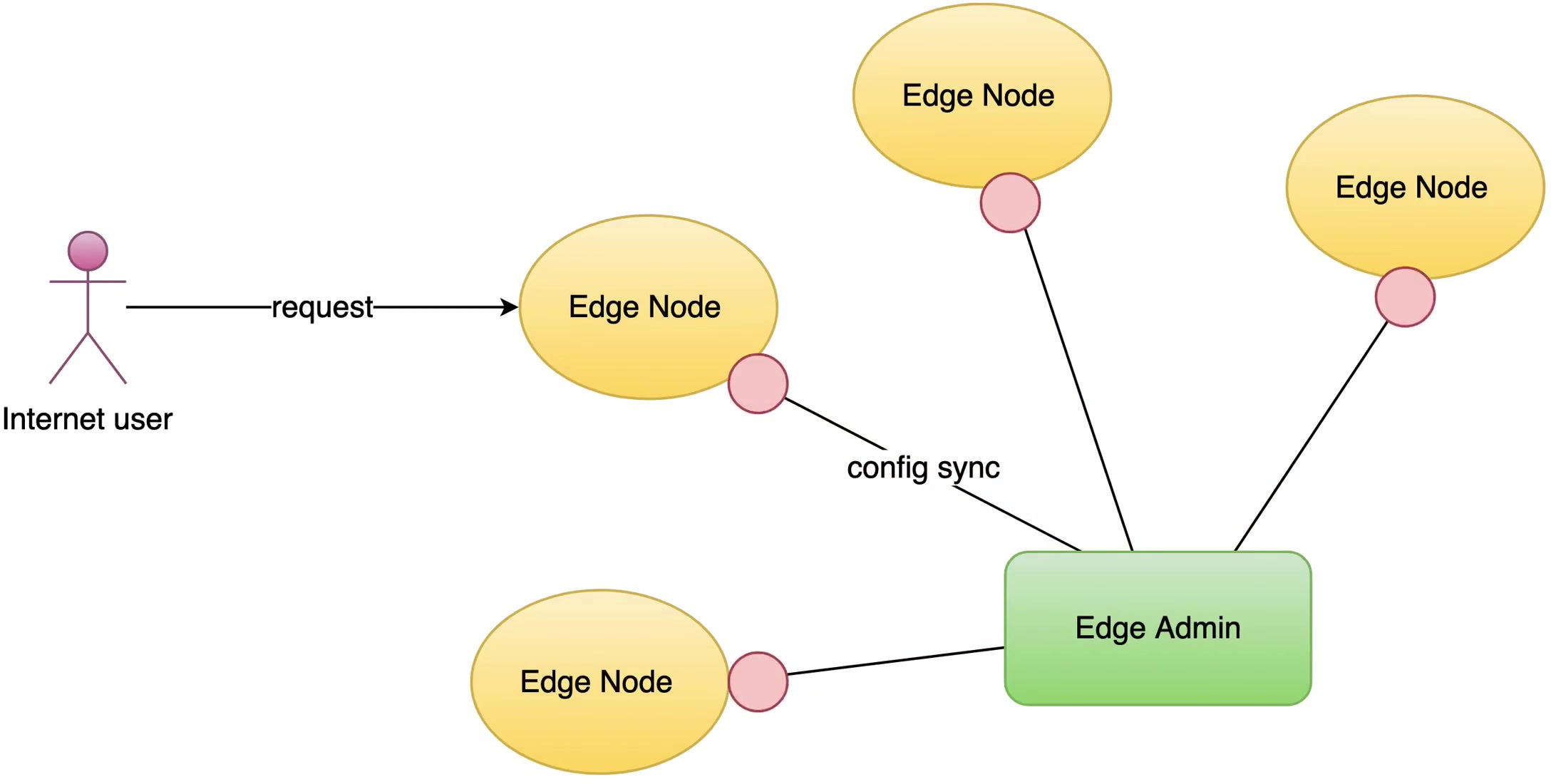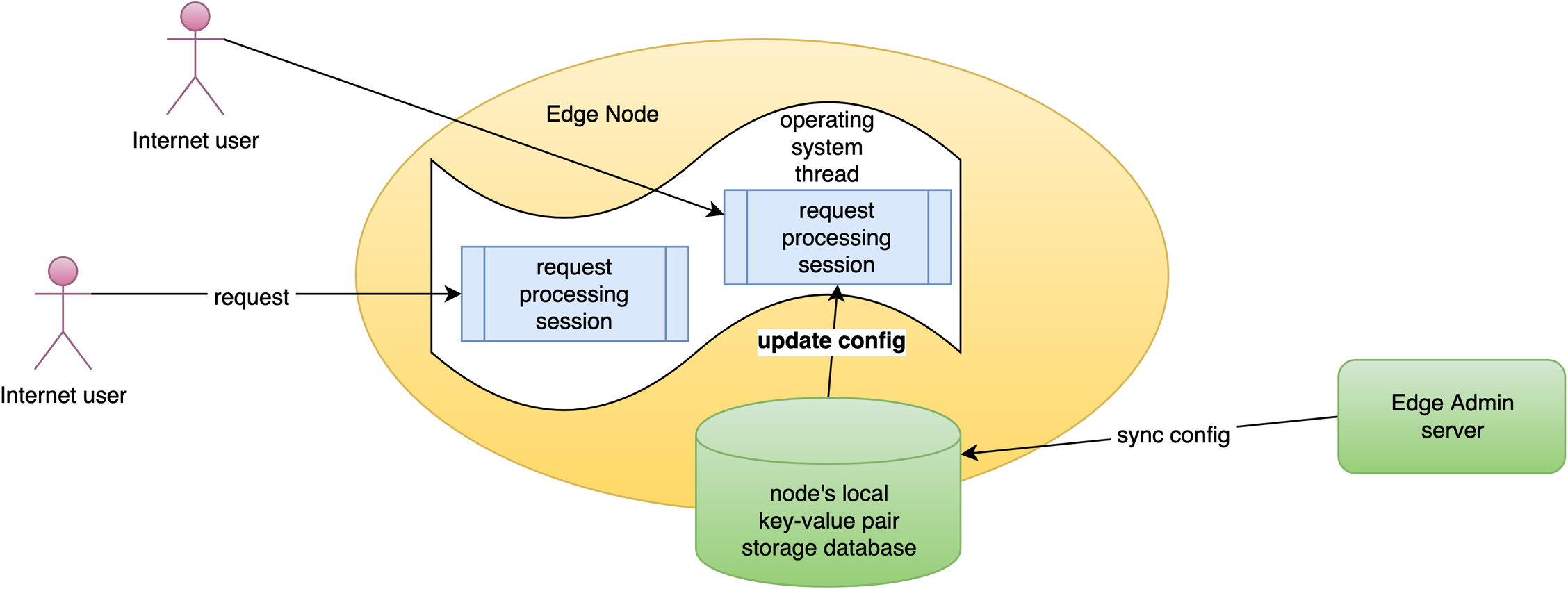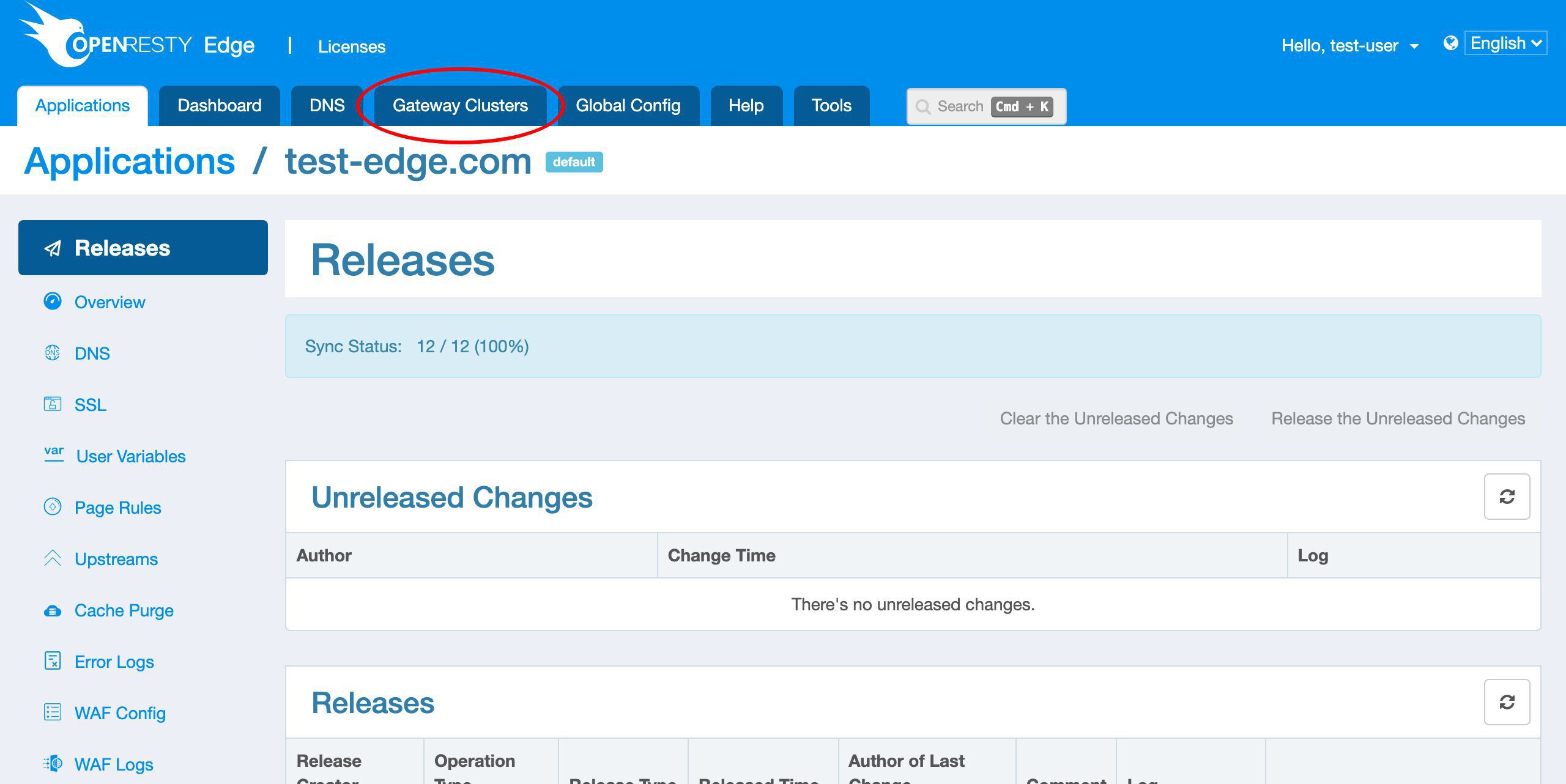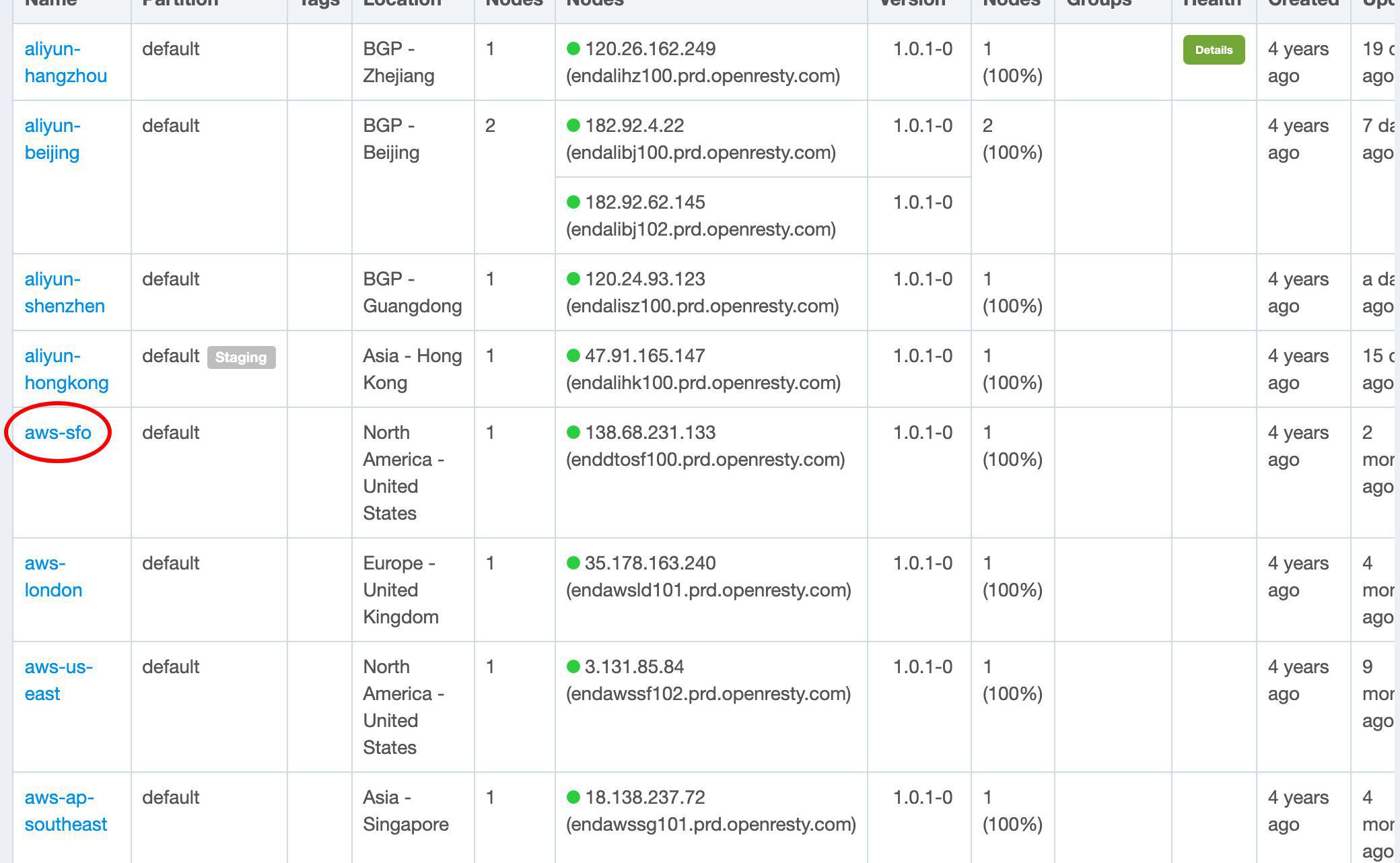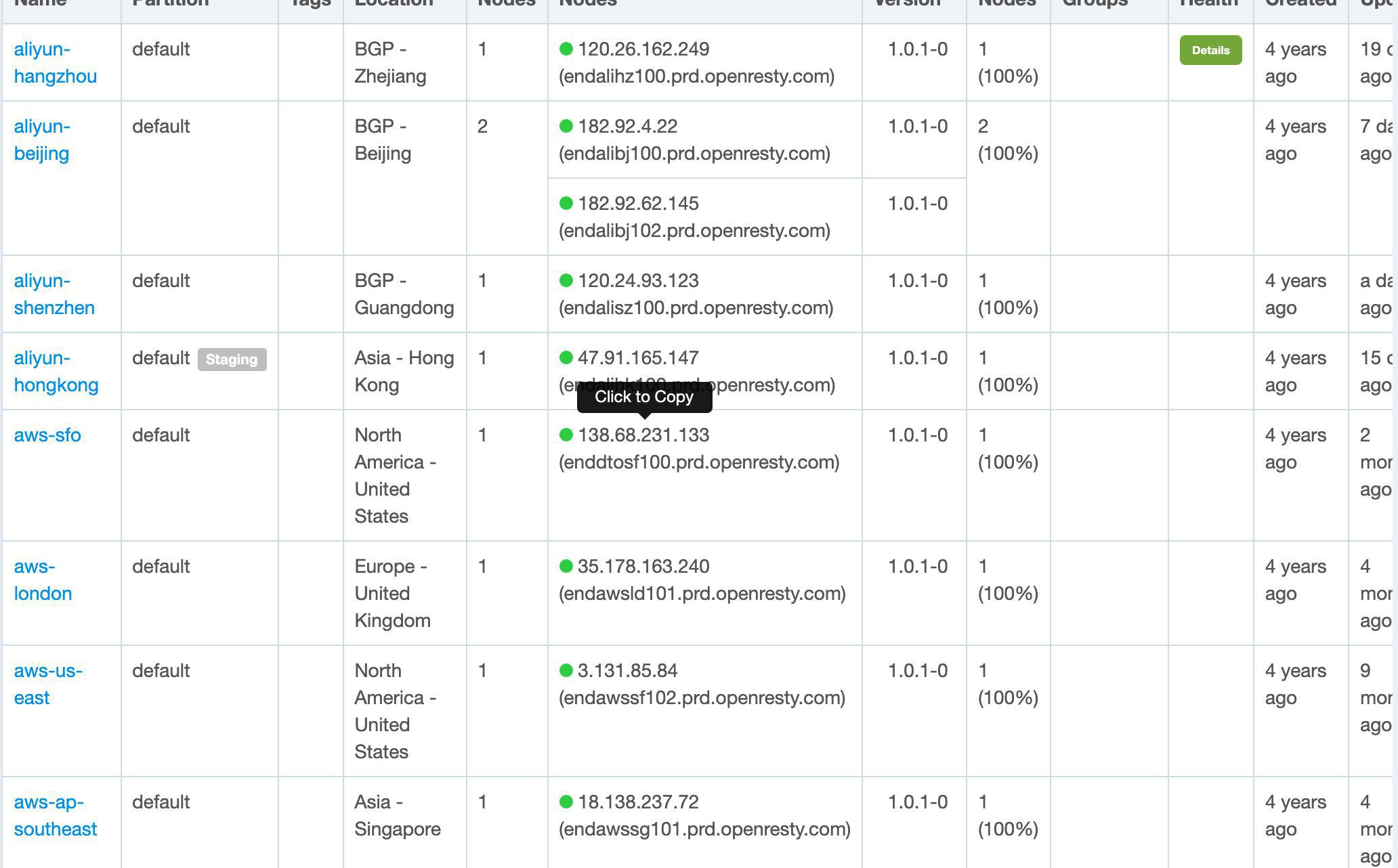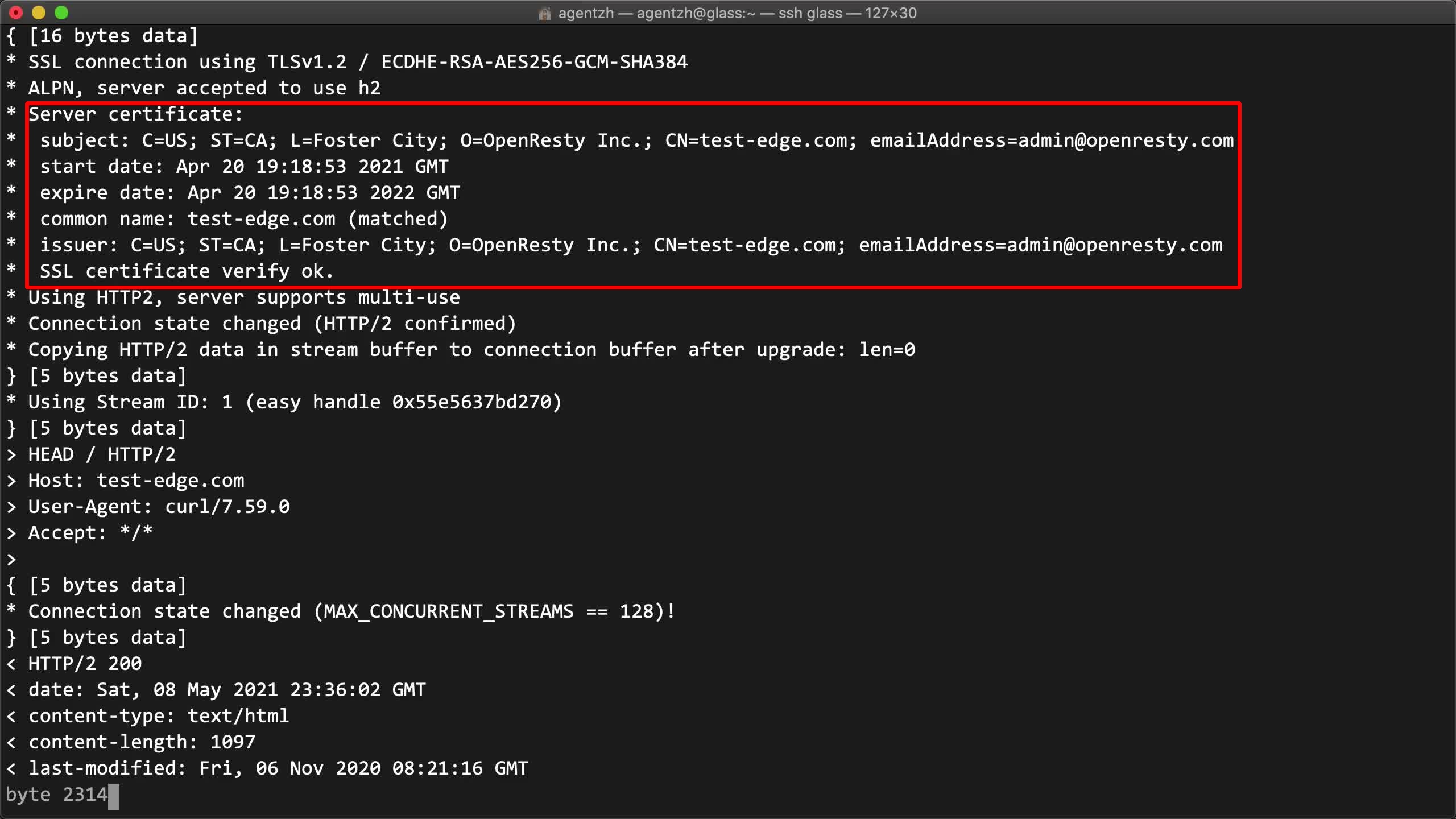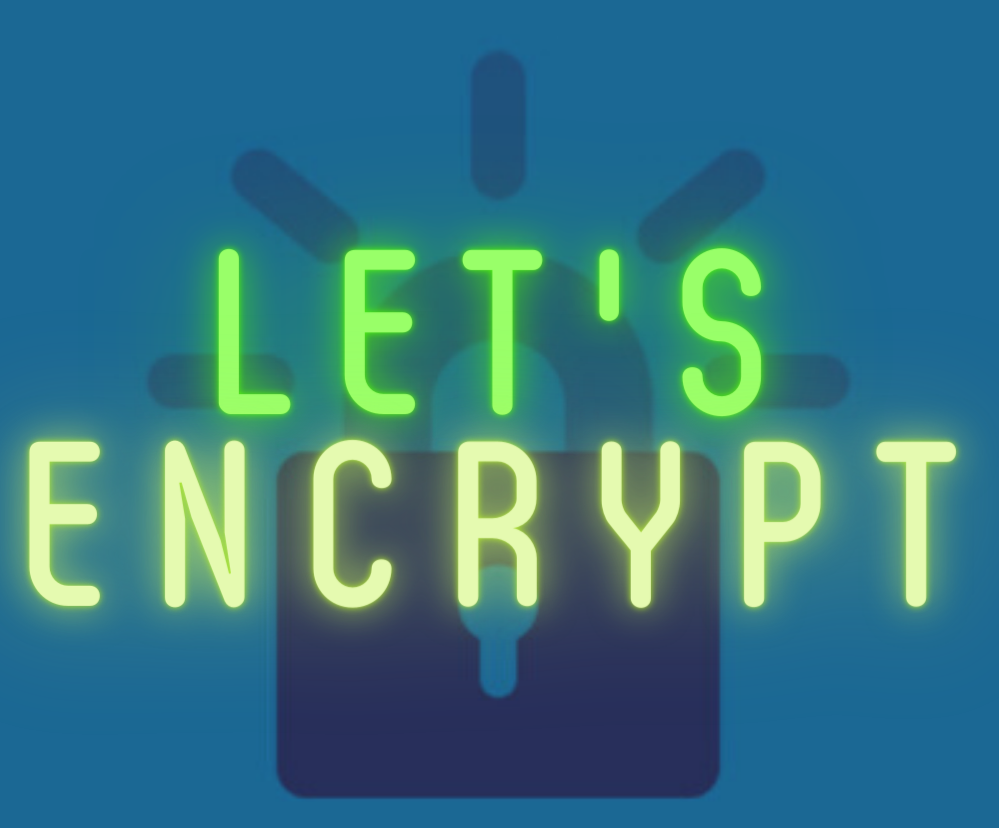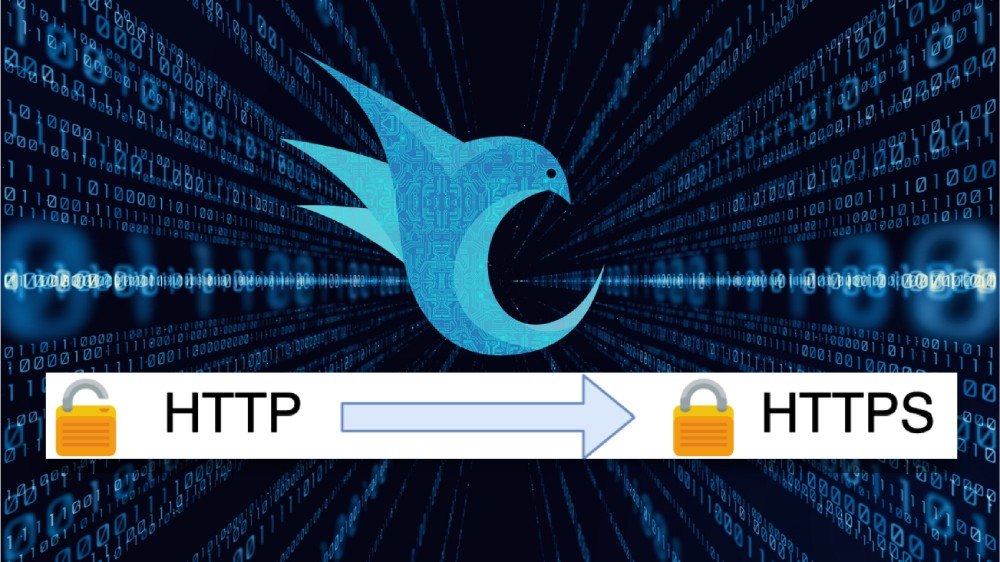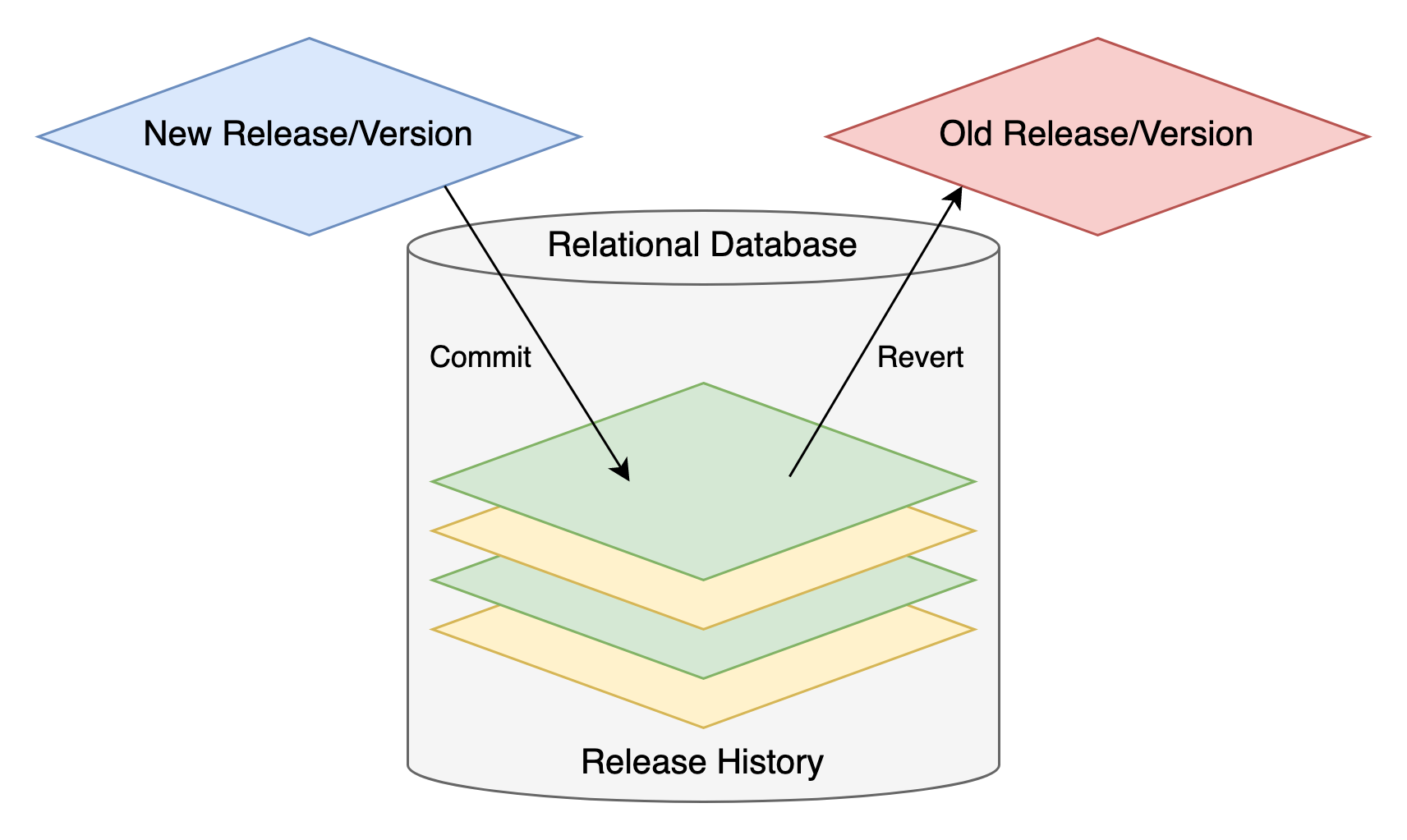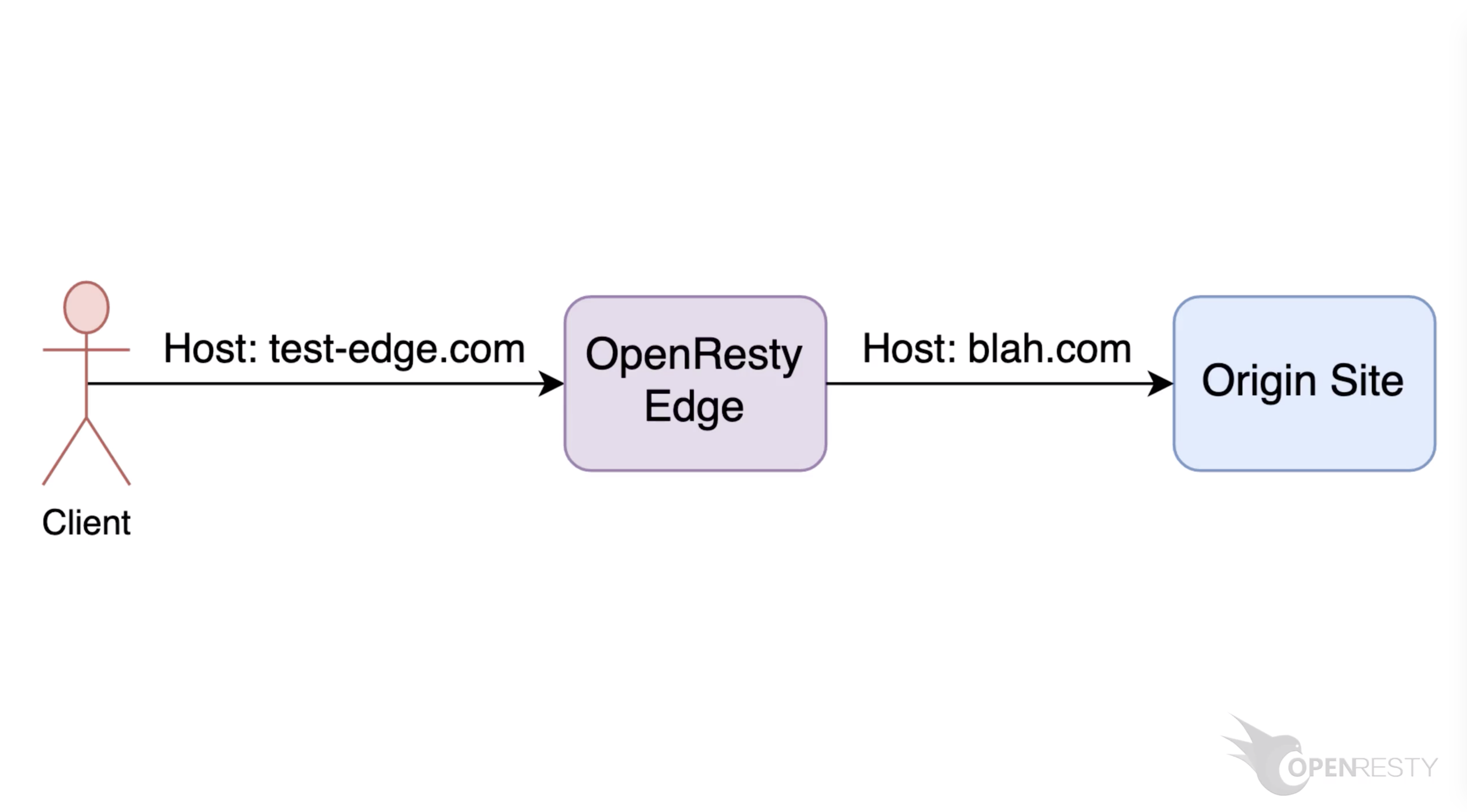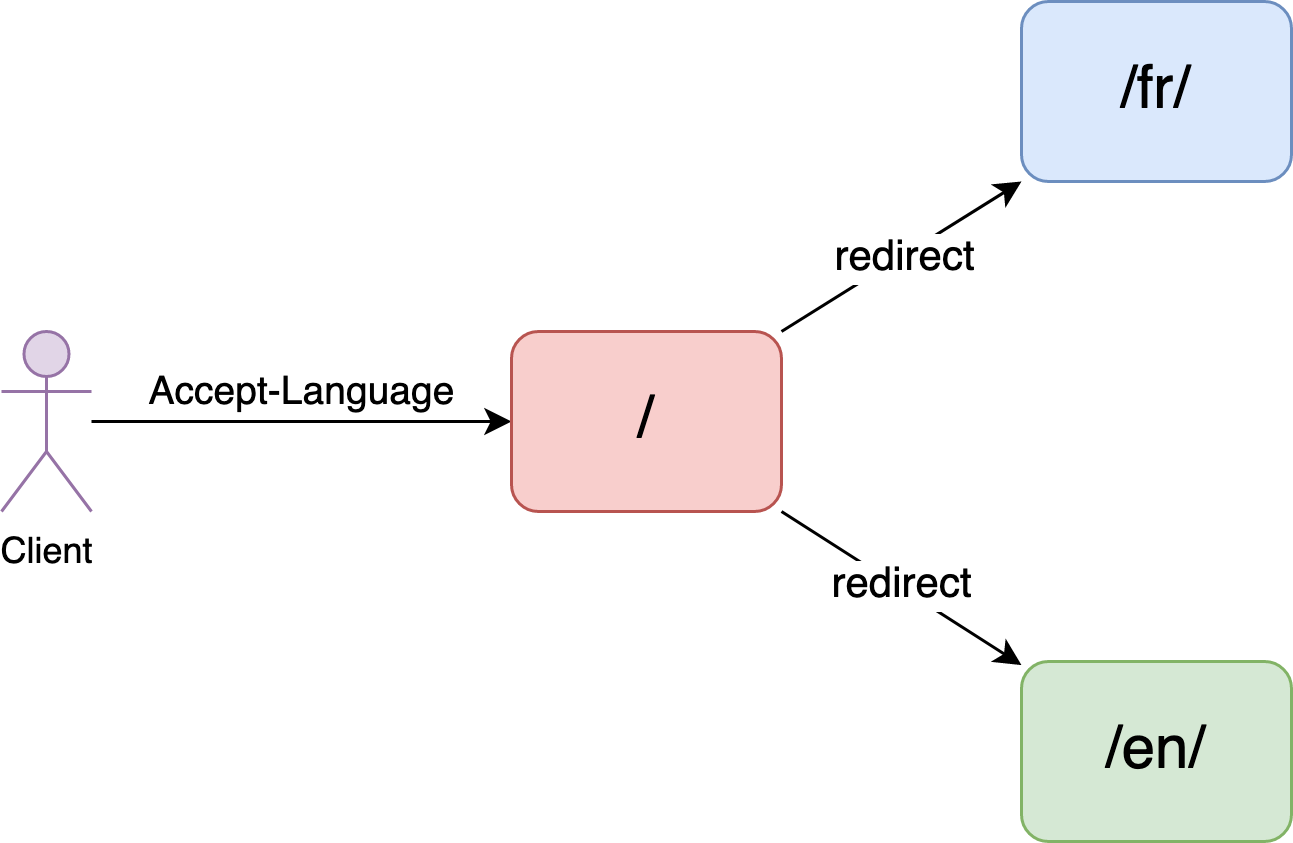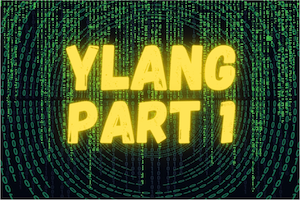Upload SSL Certificates for HTTPS Sites in OpenResty Edge
Today I’d like to show how to upload your own SSL certificates to your HTTPS applications in OpenResty Edge.
Upload the SSL certificate for the sample application
As always, let’s go to the OpenResty Edge’s Admin web console. This is our sample deployment of the console. Every user has her own local deployment.
This time we use our continuing sample application for the test-edge.com domain.
We can see that it already listens on the 443 port for SSL.
Let’s enter this application.
Goto the SSL page.
We can see that there are no SSL certificates defined yet.
Let’s add a new certificate.
We support various ways to add a new SSL certificate, including Let’s Encrypt.
Here we’d just demonstrate the manual uploading way.
We can copy and paste our SSL private key in the PEM format here.
We could browse the local file system and upload a local file instead.
And also paste the corresponding SSL certificate in the PEM format.
Again, we could browse and upload a local certificate file instead.
Sometimes the CA may provide a separate file containing intermediate trusted CA certificate chain.
But more often the chain is already included in the server certificate file here.
We leave it blank for this example since we don’t have any.
Save our certificate and key pair.
We can see the record for our newly created certificate and key pair.
The certificate issuing source is manual upload.
And the certificate is for a single domain, test-edge.com.
And it will expire in about a year.
We can see the exact expiration time by hovering the mouse over it.
We can also edit an existing certificate.
We don’t make any changes here.
Or we can delete this certificate.
We don’t want to delete it now.
We can also disable a certificate without removing it.
We need to make a new release to push out our new certificate, as always.
Click on this button.
Ship it!
It is done now!
Now the new certificate has been pushed to all the gateway clusters and servers.
Our configuration changes do NOT require server reload, restart, or binary upgrade. So it’s very efficient and scalable.
Test the uploaded certificate
Then we can pick up a gateway cluster server to test our new certificate.
We choose a gateway server here near San Francisco.
Copy its public IP address ending with 133.
On the terminal, we can send an HTTPS request to this gateway server.
curl -I --resolve 'test-edge.com:443:138.68.231.133' https://test-edge.com/
It works!
We can check more details like the certificate information via the -v option.
curl -I --resolve 'test-edge.com:443:138.68.231.133' https://test-edge.com/ -v 2>&1 | less -n
We can indeed see our server certificate here.
SSL certificate uploading can also be automated by OpenResty Edge’s REST API. We will demonstrate it in another video.
This is what I’d love to cover today.
If you like this tutorial, please subscribe to this blog site and/or our YouTube channel. Thank you!
About The Author
Yichun Zhang (Github handle: agentzh), is the original creator of the OpenResty® open-source project and the CEO of OpenResty Inc..
Yichun is one of the earliest advocates and leaders of “open-source technology”. He worked at many internationally renowned tech companies, such as Cloudflare, Yahoo!. He is a pioneer of “edge computing”, “dynamic tracing” and “machine coding”, with over 22 years of programming and 16 years of open source experience. Yichun is well-known in the open-source space as the project leader of OpenResty®, adopted by more than 40 million global website domains.
OpenResty Inc., the enterprise software start-up founded by Yichun in 2017, has customers from some of the biggest companies in the world. Its flagship product, OpenResty XRay, is a non-invasive profiling and troubleshooting tool that significantly enhances and utilizes dynamic tracing technology. And its OpenResty Edge product is a powerful distributed traffic management and private CDN software product.
As an avid open-source contributor, Yichun has contributed more than a million lines of code to numerous open-source projects, including Linux kernel, Nginx, LuaJIT, GDB, SystemTap, LLVM, Perl, etc. He has also authored more than 60 open-source software libraries.

